#I did everything I could to fit into German culture
Note
Helloooo,
I'm dropping this into your ask box because of the post you made about a Cody-centric fanfic? I love the concept so much!!! I have so many thoughts about Cody on Kamino, his feelings on Clone Culture and him beeing just such an amazing Commander, brother and mum. Cause he is mum coded. I probably wont fit them all into this rant so it's possible that I will randomly ask you again, because I remembered something or I had an idea, I hope you don't mind :).
So first of all, you said you wanted to deal with Cody and Jango wich I find realy cool. I realy would love to see maybe some interaction or at least Cody's thoughts on Boba as well. I think the clones might have mixed feelings about Boba since he is treated so differently but is he actually? I mean do they ever get jelous or annoyed by him? I don't think Cody would be but maybe some of his brothers. And what's ot like for Boba, with no real friends his age, because they all age mucg faster then him? Does he even know the clones? Mhmmm many thoughts here as you can maybe tell.
Also I don't know how you wan't to do the whole Jango and Cody relationship (feel free to ignore this haha), but I always imagined that, personality-wise Cody would not actually like him. With Jango beeing a bounty hunter who sells his Service to the highest bidder, beeing a lone fighter and also rather self-centric and a bit arrogant, I imagine he would not fit well with Cody's loyalty, his morals, his selflessness and his devotion to his brothers. However, I think Cody is fascinated by what Jango represents. He is an original. He has knowlege of the world outside of Kamino. He is allowed to have a personality. He is free. He is his own human beeing. These are all things, Cody wants so badly, for himself and for all his brothers. And, through Jango, he can get little glimpses at that, can phantom what it would mean or be like, can catch a glimmer of hope. Even though it could be argued that this aching and knowing you have to settle for a fraction of everything youncould be is worse than having never known about the possibilities at all. That's why I think his relationship with Jango is incredibly important, because it's not just about them as persons but also about the collision of their worlds and the clones' potential and what the Kaminoans made them.
I don't know how you want to approach clone culture, if you want it mandalorian or not, (I always imagine a heavy mandalorian influence, but altered to fit their restricted lifes and added with little things that come just from their very unusual everyday life on Kamino) but if you want Mandalorian Influence then I think Jango plays a very important role in that as well. And maybe that's also why Cody has very complicated feelings about him. I think Clone Culture is incredibly important to him, because it can make them feel like people and Jango brought them something to start with, to hold onto. Does he idiolize Jango? I don't think so. Not as a person. But he wouldn't be who he is without him (he wouldn't even exist wow) so... it's complicated.
I think my feelings about his batch are a topic for another time, but I NEED them adopting Baby Rex. That's very important to me. They are all protective older brothers.
On the Codywan topic: I like to imagine that Cody already catched a glimpse at him when Obi Wan visited Kamino in AotC. And... not to say that he had an instant crush, but I do think seeing someone from the outside world, maybe even the first other human that didn't bear his face, had a huge impact on him. I actually wrote a scene about that a while ago (someday I will get on with writing my own Codywan Fics haha), it's in german but if you want I can translate it and send it to you so you can see what I mean. I think his visit probably was a huge turning point in their time on Kamino. It meant the war was coming and they all anticipated it, but did they realy want it to come? It would get them off Kamino, but they would also most likely die sooner or later.
In terms of them realy meeting and falling in love I usually cant even decide what flavor I prefer. I usually love the shit out of every Codywan variety, if it's a Cody fresh from Kamino still ideolizing the Jedi and then beeing taken aback by how much they actually care and how unsuited for war they realy are. Or if he has had a few missions already and then beeing surprised that Obi Wan is actually quite capable and conpetent. Anyway I think Obi Wan earns Cody's respect by beeing competend and badass, then his trust by caring for his men and always listening to Cody in making his plans and decisions and then his love by beeing his caring, compessionate, selfless and loving self. Obi Wan is just so effortlessly treating them like persons, with him, Cody doesn't have to fight for that and it makes everything so much lighter. They share the burgen of leadership and trsponsibilty and it's a heavy burden but together it's just a little bit easier, just a little bit more durable. But hey, you know all this, I'm just rambling at this point.
Depending how early into the war you want them to meet, I also love some Cody and PadawanAnakin interaction. Just him and Rex getting into shenenigans as Commander and Captain of the 212th and Cody and Obi Wan standing by, facepalming. Older sybling solidarity is important part of their dynamic to me haha.
Oh god, I already wrote far to much, but just for the last part: I'd love for clone-rebellion-era Cody to meet either of Quinlan, Ventress and Hondo, if not all of them. Ventress' history with the clones (Wolffe) and Obi Wan would make for a very interesting dynamic and I can see him just beeing completely done with Hondo and Quinlan, just like he was in Clone Wars (their dynamic was already so fun to watch haha), only now, they also remind him of Obi Wan and he doesn't now if that makes it better or worse but it certainly makes it more personal. Especially with Quinlan it's probably hard, he has every reason not to trust Cody and to Cody it's probsbly hard to accept that Quinlan survived if he at this point still thinks that Obi Wan died. If not, maybe Quinlan can help him find Obi Wan and then we also have Quinlan and Obi Wan Reunion! Only if you even want a reunion of course haha.
OK anyway I'm sorry I rambled and I also apologize for the millions of spelling mistakes I probably made but... You asked! I will probably be back with more thoughts if you'll have me, haha. Keep me updated with how this fic is coming along, I'd hate to miss it :)!
Lots of fun and good writing!
I'm really hapoy you reached out and shared your ideas with me, that's why i put that post up after all ;)
I've already written part of the Kamino Arc by now, but I will try to include what you said, because it actually fits rather well with what I already have. In my story Jango takes an interest in Cody first and pays special attention to him. In the beginning Cody likes this and feels more mandalorian pride, but throughout the next years his admiration for Jango and what he stands for transforms into resentment because he matures and learns what it means for Jango to do what he had done and also, because the special treatment he gets separates him from his brother's. He realizes the unfairness of how his brothers are treated and how they seem to start to dislike Cody too. He transforms from Kote, who is Jango's protege, to Cody, who is the clone's certified big brother. He's a bit proud and selfish in the beginning, but I want to show how he changes and how he came to care about his brothers so much, even more than most other clones.
I'm not at the Rex part yet, but Cody will probably notice him and the batch will adopt him.
At the moment Cody and Boba have a really good relationship, due to Jango liking Cody. But when Cody eventually prioritizes his brothers over being Janho'g favourite and starts to get angry with him, Boba will probably feel abandoned by him. I feel like he would think Cody has chosen everything else over him and Jango probably won't let them spend time with each other anymore. So Boba once loved Cody and eventually resents him for leaving him alone once more. Boba grew up isolated from everyone else and Cody was one of the only ones Jango allowed to spend time with him, since the other clones don't like Boba for getting to be a child.
Cody focuses a lot of his time on the clones afterwards and neglects his relationship with Boba. I will come back to this later when Jango dies and the whole thing with Boba and Mace and the Bounty Hunters starts during the war.
I hope this fits with what you think about Cody's characterization.
Feel free to add anything you want to this. You can also ask questions, if you want to know how I'll handle certain relationships or events.
I'm not really planning the Codywan part until I'm finished with Kamino and know where this story has led me, but I will come back to your points then.
Thank you for sharing your thoughts and I hope you like mine hahha
I also plan on uploading a glimpse of the beginning sometime next week and I hope you'll give me feedback on that one. :)
PS. I'm actually German too, so if you want to you can send me yours. That's also why I'd be glad for everyone to point out spelling mistakes or something similar.
#commander cody#clone wars#clones#cody is a dad#commander buir#cc 2224#codywan#captain rex#obi wan kenobi#fic rec#fic in progress#fic inspo
20 notes
·
View notes
Note
Hello Hello! I know it's been a while but I was wondering if you could have the lyrics and maybe the instrumental of the song that Asha sings in the square to help her people (if you don't want that's fine... I'm studying and I started listening to some songs to inspire me and I remembered about this scene in your rewrite and I started to imagine your rewrite as a 2D animation of the classic Disney and I wondered what this scene would be like heheh) if you don't mind too... I also wanted to know what your favorite foods are of your characters in the rewrite (asha, magnificent, amaya, and the 7 teenagers), you could also say what the 7 teenagers like to do alone/ their hobbies. Well, that's what I wanted to ask about your rewrite, sorry if it was a lot of questions, I'm LOVING everything about your rewrite♡ ten thousand times better than Disney's wish😤 anyway, thanks for the rewrite and stay well and drink water hahaha😁😋
Unfortunately I don't have lyrics for that song yet, it would take me a lot of time that I don't have yet to work on creating it, maybe once I'm done with the whole rewrite I can try coming up with something since that song IS very important to the narrative, and currently all we have is "It's an inspiring song about fighting to achieve what you wish for no matter if all the odds are against you" that so happens to have a few references to past Disney I want songs.
Though... After listening to this deleted scene
youtube
I'm considering making "A Wish Worth Making" THE song, or at least a place holder for now. It's surprisingly fitting. However, my idea was for the song to be like a story that Sabino told her, since ya know, he couldn't sing nor play the mandolin because that was his wish that Magnifico kept from him... So I'm undecided.
Anyway, now for the favorite meals part, that sounds fun, and helps me explore the national heritages of each one of the characters, so let's do this:
Asha
Her favorite food is Mhalbi with pistachios, a milk pudding from Algeria. Her mother was Amazigh, and she taught this traditional recipe to her husband and Sabino. After she passed Sabino would still make it for Asha, it's a little piece of her culture that is very sweet and easy to make, she has a bit of a sweet tooth.

Dahlia
Dahlia is a special case since her family has been robbed of their passion for their traditional cuisine, if originally her mother and father wished for things along the lines of "We want to share our culture through our food" the king changed that to them just cooking what he liked. Sooo she has no connection to Japanese food. But, hypothetically, if she did grow up with her parents acting normally, her favorite meal would be Takoyaki, a savory dish of grilled balls of batter made with flour and eggs filled with octopus chunks and other ingredients.

Gabo
The name "Gabo" has German origins, so I decided Gabo's family comes from Germany. His favorite dessert is a bienenstich kuchen, also known as "bee sting cake", I think it's fitting because Gabo is always acting like he just got stung by a bee. But besides his rough exterior he has a soft spot for sweets.
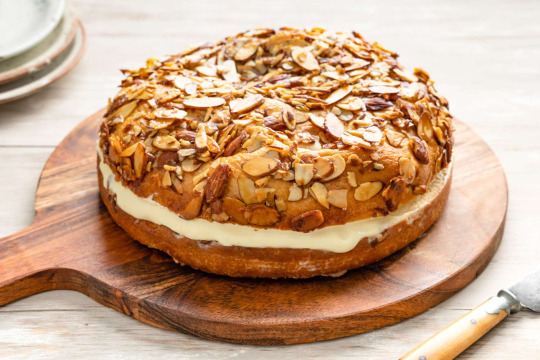
Simon
Simon's last name is O'Donohue, which is a name of Irish and Gaelic origins, also the name means Dark Fighter... Interesting. Anyway, so his family is descended from Irish people, thus I choose that his favorite food is a traditional Irish Colcannon, a flavorful dish of mashed potatoes and greens like sauteed kale, and green onions. Quite easy too make and eat for a sleepy head like him.

Bazeema
I've mentioned in my blog about the 7 teens that Bazeema is muslim and wears a hijab (As she did in some concept arts... But Disney changed that, cause they're stupid) so her favorite food is a Palestinian lady cheeks... heheh get it? Because Bazeema blushes a lot?... Anyway this is a traditional dessert are like made with orange blossom water, cinnamon quill, caster sugar and other sweet ingredients, sweet just like her.

Hal
I saw on twitter that Hal's earrings resemble "Jaaro dibbei" earrings from the Fulani people, a West African tribe. So I picked a traditional meal from west Africa. Kedjenou, this dish consists of a spicy stew that is slow-cooked in a terracotta pot over fire or coals. Hal is more into spicy food, matches her fiery passion.

Safi
Safi is a name of Arabic origins. His favorite dessert is Mamoul, a traditional arabic cookie, made with yeasted semolina, these vanilla and rose-infused cookies are sweet and floral with a decadent and robust centre, and although they look like they'd make Safi sneeze like crazy, they're one of the only meals that don't make him sneeze at all.

Dario
Dario is an Italian name. So I picked gnocchi because SAME! Gnocchi is my comfort food too and I'm not even Italian, Dario is just like me for real.

... *siiiiiigh* I was dreading getting to them... Here we go:
Magnifico and Amable
The blood of their enemies Just kidding, I'm giving them both the same favorite food because honestly these two have so much in common they might as well be the same character (Also it's currently 1 am as I'm writing this, I must go to bed.) so let's wrap this up. Their favorite dessert is Spanish Baked Apples, get it? Like the poisoned apple from Snow White? HAHAHAHA- Actually come to think of it their favorite meal might be children's tears, idk.

WOOOOO okay this was a wild ride, researching and learning about all these meals was really fun! Thank you for the ask!
(Also I just now realized you also asked for their hobbies... I'll try answering that another time, cause' like I said, I gotta go to sleep lol)
Aster has no favorite food yet by the way, because he can't even taste food, but comment what meal you think would be his favorite if they were human.
#wish rewrite#disney wish#wish movie#wish reimagined#kingdom of wishes#7 teens#wish#wish 2023#wish asha
28 notes
·
View notes
Note
An ask you had recently mentioned American-Centrism (which is it's own topic, and was just a jumping off point for my line of thinking here), and one of the comments on it talked about how people in the USA, Canada (and Australia and New Zealand, etc) will talk about their ancestry. We've all seen people say they're Irish, for example, before they say they're American, even though their family has been in the USA for several generations. Or Italian American, or a Canadian who's "German and Irish", and so on with other countries and other nationalities. It's a veritable plague in many ways.
I'm not saying it's wrong to be frustrated by this by any means--it's a massive pet peeve of mine. I'm from the Balkans, and while I won't get into my own ancestry, suffice to say my family has been living in the same area for centuries, and likely longer. There are buildings in my small town centuries older than the USA. We have rich traditions that the "New World" (so to speak) simply doesn't have. Hearing someone say they're as "Balkan as I am" is frustrating, especially when they try to lecture me about my own culture. It leaves a sour taste in my mouth, and in many cases the push back against these people is well deserved.
But I don't ant to ignore how complicated this all is either. "White American" (or Canadian, Australia, New Zealand, etc) is seen as a cultural void almost--just look at the jokes about people having no culture. But humans cling to ancestry and want to learn more about where they come from, as that's human nature. When your family has done everything to remove their culture and fit in with a new society, it effects you, and that in turn effects how these people interact with the culture they feel like they're missing. There's a reason why diaspora populations have their issues after all, and why those issues are so unique. Culture is entrenched in humans, but a lot of people don't have access to it in a way they once did. My country isn't rich. It's pretty shitty in a lot of ways, but you can FEEL the culture and entrenched traditions here. You can't in a lot of the places people who cling to their perceived past live (in my experience in moving for school and living briefly in the USA and through my area of study).
I have an aunt who moved to the USA in the 80's. She didn't teach her children her mother tongue so they could fit in, and did everything she could so that she, her husband, and their children, could fit in and have "American dream". And in some ways, they did and still do. But as we all know, the American Dream is hardly perfect. Seeing how desperate my cousins now are to have a connection to their culture, I think I can understand why people cling so hard to what they feel like they're missing.
I'm not saying that they're in the right, and I do think these people who cling to that whatever percent (insert ethnicity) need to sit down and fucking listen. They're showing themselves as ignorant more often then, and need to stop talking over others. That's a sure fire way to have everyone hate you.
Going back to the example of my cousins. One was horrible about this for awhile, and she's first gen. She grew up with people saying they were X percent this, and Y perfect that. So she parroted it. And I hated her for awhile. But she eventually (thankfully) grew up, and came to visit and asked to learn and to grow. That makes such a huge difference. Most people, in my experience, are happy to share culture when it's done in a respectful manner and coming from a place of genuine interest.
I know this is all incredibly nuanced, and I'm not expressing myself perfectly. The push back against American-Centrist is well deserved in many ways, but that doesn't mean there aren't other parts to the conversation. Maybe it's because my area of study is anthropology and human culture is deeply entrenched in my day to day research, but I find it both fascinating, and incredibly sad.
*note, I'm not saying there is no culture in America. But responding to people here and in the internet in general, and stating some general observations.
--
People are also just used to communicating with other locals.
In the US, me being a specific flavor of Irish/Scottish/English/German/Protestant French mutt is what distinguishes me from other white people. It's not weird to talk about your background in a context where a lot of people's families aren't originally from here. You're a such-and-such-American as opposed to some other kind of American.
It's just that when one goes online into a highly international space, local shorthand doesn't really work.
95 notes
·
View notes
Text
I have been watching SO FREAKING MUCH Elden Ring lore videos that it's just inspired me to finally sit down and write down info of my own content. I'm in the word vomit stage where just every bit of info gets written down out of order and with little structure but it makes sense to ME so putting it in an orderly fashion in a structured document later won't be an issue but it's super funny to see that mess. I've had a lot of challenges throughout the years when it comes to world building. Like obviously shaping up Oracle to be as cohesive as possible, shaping the mythology, biology, whatever-logy of my werewolves, the rules and structures of the arcane and so on. Don't even get me started on Jelani's original self origins and how to fit an entire creation origion complete with deities and pantheons and justifying it in a way that can be easily digested. That was an undertaking that has been developed for over 10 years. Don't get me wrong, Jelani's original self story is really solid as it stands now and I poured so much of myself into it without really realizing it till recently. It was arduous work and I scrapped and changed so much that even characters involved in it were discarded due to how I was evolving the story. Don't know if any of y'all remember Jet but she's gone. She's been gone for long years now as I myself came into realizing my own self and discovering things about me. Jet just outlived my own perception of me which allowed Angelus to evolve and change as I did too.
However, shaping an entire people and a culture has been so much work and so much research. It's been equal parts fun and a pain in the ass. I like taking inspiration from real world things and adding a twisting shape to it. Long ago when Oracle was taking shape I wanted to represent not just myself in it but the rest of the world too. I wanted to add those who go under represented or if at all in it. To be honest the hardest but most rewarding part is doing it respectfully, I've had to peel away so many layers of negative and bigoted stereotypes we see everyday in media. 14-year-old me could have NEVER ever created a good character of color that wasn't from the same background as me because I had no access to the internet as I do now much less was privy to all the knowledge that I've come across. I'm not saying I'm perfect now but I know to sit back and analyze before creating a character for Oracle. I know that what is okay for certain people to be shown as is not okay for others. I have to give myself crash courses in history lessons to double check that I haven't given a character of color a trait that's seen as racist or any type of phobic. It's hard but there is NOTHING better than seeing people voice their concerns about a movie or game with a poc that's portrayed in a bigoted way and seeing people list off racist and harmful stereotypes to avoid in (insert culture/ethnicity) people and I managed to avoid each and every single one because I did my research and listened to people's concerns. That alone is amazing and I'm just one guy with the only tool available to him being Google cuz he's broke and can't pay people for information. I can't believe literal companies with millions in budget still can't get that right. It just boggles me.
But back to the point, the second biggest challenge has been forming the culture and history of the Nyota tribe. You know, it's far easier to readily find all kinds of information about Vikings than it is to find information on medieval Africa and I'm not talking about Egypt, I'm talking everything aside from Egypt. I can easily trust Google Translate to give me a near perfect translation of a short sentence in Norwegian, Finnish, German, Spanish, French or Italian. Hell, Latin which is a very dead language is easy to Google for translations! But finding translations--good translations--for Swahili, Xhosa, Zulu or much of the thousands of thousands of languages spoken in Africa is challenging. Gee, I wonder why that could be.
I'd love nothing more than to have a non-English name for Starheart which is THE HOLIEST of all holy relics to the Nyota. A tribe that came together from different cultures (Maasai, Bantu, Swahili, Kikuyu and more) and in just those there are a ton of different languages but translations are hard to find. At least in MY experience anyway. Need to learn to search better. I'm currently working on a zodiac with roots tied to the phases of the moon and I wanna use the actual languages spoken in the area where the tribe is located. Gonna be honest it might take a while. Plus I admit when it comes to things I really take a liking to I’m a perfectionist, it has to be JUST right. There’s so much I wanna write down about the Nyota because biases aside I believe them to be a really interesting bunch and the most rooted in fantasy, which is my favorite of the genres. True, I do refer to Oracle Corp as weird espionage but whatever, it has a lot of stuff just thrown in. I have all this floating around in my head and I’d love nothing more than to neatly put it together to show off because I’m super proud of it, it’s been one of the most fun subjects to work with and the culture is base on some of my own thoughts too. Slow going but I’ll get there, besides, I’m constantly making changes to things and updating character profiles to meet better quality so I can always go back and change as I get better information. I just wish it was a bit easier sometimes.
3 notes
·
View notes
Text
Beta and Palaestra
-
B: Oh, Hello. Where are we? Or when are we? I'm not sure what coordinates I should be inquiring about to orient myself when talking to you.
P: You remember Alice and Bob?
B: Yes, I think we spoke with them a bit ago. Although their conversation became rather technical rather quickly and I couldn't follow them down their well-trodden paths of taxonomy.
P: Okay, good. They're us.
B: Pardon?
P: Or perhaps we're them. It's hard to say exactly. It's somewhat like offices, like stations. A king or a guard or a priest, they remain even though the individual who occupies the role changes. Yeah?
B: Yes, I'm familiar.
P: Well, you're the Bob to my Alice. We aren't just those relationships, of course, but they hold somewhat true.
B: I think I follow.
P: In many ways we came before them, we're making those types, those roles that will be passed on to A and B later. But in other ways they came before. It's complicated.
B: Very well. That makes, if not sense, it makes less nonsense than many other things you've told me.
P: You're dead now, are you aware?
B: I gathered as much. There was the fire in the library and all that.
P: So you've been tasked with running a world, being a world. Being the parchment on which a story is written.
B: Beta's World. I've seen the title. Yes?
P: Exactly. I have a read on what, and you have a sense of how.
B: Okay you've lost me.
P: Yes, fair. Are you familiar with Anaphora Springs? It's a place, a town.
B: Can't say that I'm familiar.
P: Ah, yes, well. You're going to be, in a manner of speaking, bound to it. To part of it. The town square, specifically. As a vagrant, as a bird, perhaps as a statue of you prefer.
B: Who, or what, is in charge of all this? You seem to be doing the bidding of others.
P: You're not wrong on that point, but you're not entirely accurate either. It's a collective sort of thing. We march, or dance if you prefer. I prefer. We dance to the beat of the drum played by rumor. Rumor isn't a someone, it isn't an organization, it's an activity in which we all partake.
B: Uh huh.
P: It's not a metaphor, it's just a description. Some may call it culture, some prefer deities, ghost of the times if you speak German. But you don't. I don't either. Dharma?
B: I'm just going to pretend I know what that means to see if the next bit of information helps clarify. Sure. Yes. If course.
P: That's the stuff. Thank you. Well, we're part of an effort to repackage a lot of technical information into something accessible, to something delightful if we can swing it.
B: Why? What are the stakes?
P: Everything? Nothing? Paradise if you go in for that sort of thing.
B: Ah. So, some sort of... no. I don't want to be dismissive.
P: Appreciated. Well, yes, you see, why did you become the head librarian at the library of Alexandria? I don't want you to answer, I just want you to reflect on that motivation. It would be hard to give just one answer, I assume.
B: You assume correctly. There are many reasons, in a way there are no reasons. It's, well, yes. Because rumor is large and contains much. Rumor could be improved.
P: And that's what you'll be doing in Anaphora Springs. The next world, the world we're calling Lipsum until it has a proper name. If it ever has a proper name. Maybe names will be verboten in that world. It's hard to say.
B: So, this town square?
P: Yes. We're calling it Square One. It's borrowed from a phrase. Back to square one. You won't know it yet.
B: And what do you need me to do?
P: We need you to stay in that square, we need you to be someone that everyone who passes through can talk to, can know. We need you to be a teacher, a touchstone.
B: I think I can do that. I always liked being a reference. Someone people come to when they don't know where to start. That seems fitting.
P: Good. I'm glad. Thank you.
B: How do we get started?
1 note
·
View note
Note
Did you change your mind about posting art of your other bully characters? If so, could you perhaps give some details about them even without the art?
Asdfghjkl no I didn't. I just take forever to finish a drawing because I'm super anal about everything. I also keep experimenting with new art styles so I'm not completely sure how I want my finished drawings to look like. I was lucky to even post Brandi because if I thought about if for a second more I would've changed my mind and never posted her.
But I'm happy to share some info about my other OCs without any accompanying art if you're really interested. They're all girls because boys drool I have an easier time drawing women and Bullworth needs more female students.
So far I've only provided 3 (with an update to Brandi who I posted like a month ago) because these are my most developed and favorite characters. I hope you appreciate them!
Fiona Montague
Basic Info:
Full name: Fiona Sloane Montague
Age: 16-17
Grade: Junior
Clique: Preppy
Extracurriculars: sideline cheerleading, golf club, Spanish club
Skills: ice skating, viola, painting
Cultural background: East African ancestry, English
Appearance: dark brown eyes, medium length curly brown hair, dark skin, 170 cm
Family: Maureen (mother), Lucius (father, deceased), Archibald "Archie" (older brother, deceased), Carlisle (step-father, missing), Noah (younger half-brother)
Bio:
Fiona was born and raised in Richmond, London and grew up as the introverted younger sibling in a British aristocrat family. Tragedy struck when her father and brother died in a car accident, and shortly after her grief-stricken mother remarried, uprooting Fiona to the United States. Facing abuse from her step-father, Fiona found solace in her friendship with Tad Spencer at Bullworth, where she initially struggled to fit in with the American preppy crowd. She's known for her aloof and cynical demeanor and is an accomplished ice skater, pouring her passion into the sport, whether practicing alone or with her partner.
Character Info:
She is the only preppy who is legitimately English and finds their faux accents annoying. When she is hanging alone with Tad she makes him drop the accent.
Her stepfather went missing while on a family vacation to the Amazon.
She loves birds and owns 3 ducklings.
She's lesbian. She's not out but many rumors circle around school about her sexuality due to her lack of interest in dating.
Really wants to kill Mr. Spencer
She feels very guilty about not being able to emotionally connect with her half-brother.
She's very mild-mannered
Meta Info:
Her middle name, Sloane, was what I originally named her, which is a reference to the term "Sloane Ranger"; British slang referring to an upper class Londoner
Initially designed as a goth but I reworked her into a prep. Enoby rolling in her grave rn.
Her original surname was "Regis"
Beverly Grier
Basic Info:
Full name: Beverly Grier
Age: 17-18
Grade: Senior
Clique: Jock
Extracurriculars: sideline cheerleading, competitive cheerleading, yearbook committee
Skills: physical fitness specifically gymnastics, dance, surfing, mathematics
Cultural background: Mostly Scottish and German ancestry, some Hawaiian ancestry
Appearance: grey eyes, long wavy platinum blonde hair, pale skin but usually tanned, 177 cm
Family: Claire (mother), Robert (father), Stevie (younger sister)
Bio:
Beverly was raised in Santa Monica amidst wealth and privilege, and she harbored a mean spirit that led her to becoming a quintessential "mean girl". After her parents' divorce, she and her sister were divided, with Beverly placed under her mother's care and relocated to Bullworth a year later when she remarried Derby's father, Mr. Harrington. Initially aligned with the Preppies, she later gravitated toward the Jocks, becoming the team captain of the sideline and competitive cheerleading teams. She took a young Mandy Wiles under her wing and eventually promoted her to captain of the sideline cheer squad and crowning her the new "queen bee".
Character Info:
Does gymnastics and wants to compete in the Olympics
Her little sister is a musical prodigy and excels at wind and string instruments. She's the favorite of her parents which causes Beverly to resent and mistreat her
She believes her mother did not want custody of her, but rather her sister instead
Beverly is really likes to surf and competes in competitions every summer when she visits he father and sister in San Andreas California
Her paternal grandmother is Hawaiian. She learned how to surf from the daughter of her grandmother's best friend
After promoting Mandy, she now serves as the co-captain for the sideline cheer squad
Her mother's marriage to Derby's father lasted 3 years, and he immediately got back together with Derby's mother.
Derby and she did not share any real sibling connection before or after the divorce and he is a bit smitten with her (not like it would matter to him considering his family's marriage customs :P).
Despite joining the Jocks, she's currently on good terms with Derby. It did sting his ego and he was initially very salty about it for a while.
Great friends with Bif and they regularly hang out or go on dates
She sees Mandy as the little sister she always wanted, primarily because she does what she wants
She used to bully Lola a lot until she became a greaser and Johnny and the others started protecting her
Mean girl with no heart of gold. She's an ice queen.
All around horrible person but she can rock bangs
Dina Irving
Basic Info
Full name: Geraldine "Dina" Irving
Age: 17-18 years old
Grade: Senior
Clique: Jock
Extracurricular: sideline cheerleading, competitive cheerleading, cooking club, dance team
Skills: physical fitness, dance, geology
Cultural background: Irish American, African American
Appearance: brown eyes, medium length dyed blonde hair, light skin with freckles, 175 cm
Family: Jennifer (mother), Michael (father, deceased), Benjamin "Benny" (uncle), Matthew "Matt" (older brother)
Bio: Dina Irving had a challenging upbringing as a child. Being a socially awkward tomboy she faced isolation and endured intense bullying from her peers. However, her life took a significant turn in middle school when Beverly Grier, out of pity and a desire to have a yes-girl, reached out to Dina and transformed her into the girly social butterfly she is today. Under Beverly's guidance, Dina flourished, acquiring popularity among the boys at Bullworth Academy. However, this attention came at a cost, as her eagerness to please others led to a reputation that she was "easy." Despite this perception, Dina longs for genuine connections and a meaningful relationship, yet many of the male students fail to treat her with the respect she deserves and dismiss her as merely a conquest. Despite her clique's arrogant attitude and her admiration of her best friend Beverly, Dina has a kind and gentle nature. Her submissive disposition often puts her at the mercy of others, causing her to prioritize their needs above her own.
Character Info:
She's on the spectrum, specifically diagnosed with Asperger's. Her perceived oddness is what led her to being bullied for most of her childhood.
She likes comics and video games which she keeps a secret from most friends. The nerds sometimes allow her to hang out in their safehouse despite her being a jock.
She and Dan are friends and sometime play video games with each other.
Good friends with Bo as well and they often study together and share notes
Dina is still a bit of a tomboy but she is very afraid of being ostracized again so she keeps up her girly persona.
She is bisexual but doesn't exactly know this yet. She's been on "dates" with girls without realizing they were dates.
Loves geology and has a rock collection which Beverly loathes
Obsessed with the static feeling that comes from CRT TVs and fines it comforting.
Meta Info:
Damon and Bif both have a voice line mentioning a female student who has been with the entire football team and I decided to base Dina around that concept.
"Pretty in Pink" by The Psychedelic Furs was also a big inspiration when creating this character
I used to loved pressing my hands and face against our old CRT TV back when we had one so I incorporated that quirk into her character. I love giving my OCs small fragments of my own personality.
And for here are some minor character updates for my #1 girl Brandi (preppy):
She's a skilled singer, but extremely annoying about it
Is a member of the Glee Club and personally kicked Chad out
She is on both cheerleading teams
Uses Donald as lackey
She's been in a few Broadway productions. They had to cut her mic off one time because she was doing the most
#bully cce#bully scholarship edition#canis canem edit#bully ocs#canis canem edit ocs#bully se ocs#typos guaranteed bc i'm too tired to proofread this rn
1 note
·
View note
Text
On Killing Charles Dickens
I did everything I could to avoid writing my historical novel. When I finally started “The Fraud,” one principle was clear: no Dickens.
— By Zadie Smith | July 3, 2023
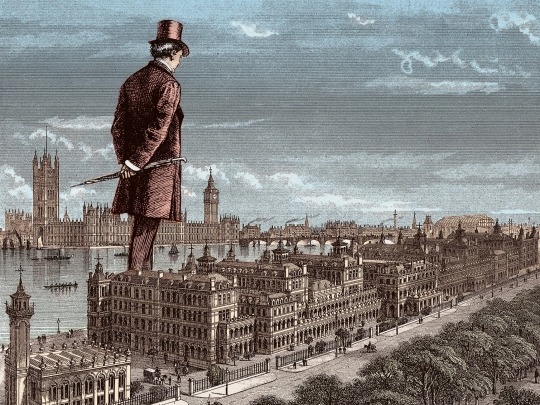
In nineteenth-century London, all roads seemed to lead back to Dickens. Illustration by Javier Jaén; Source photographs Getty; Wellcome Collection
For the first thirty years of my life, I lived within a one-mile radius of Willesden Green Tube Station. It’s true I went to college—I even moved to East London for a bit—but such interludes were brief. I soon returned to my little corner of North West London. Then suddenly, quite abruptly, I left not just the city but England itself. First for Rome, then Boston, and then my beloved New York, where I stayed ten years. When friends asked why I’d left the country, I’d sometimes answer with a joke: Because I don’t want to write a historical novel. Perhaps it was an in-joke: only other English novelists really understood what I meant by it. And there were other, more obvious reasons. My English father had died. My Jamaican mother was pursuing a romance in Ghana. I myself had married an Irish poet who liked travel and adventure and had left the island of his birth at the age of eighteen. My ties to England seemed to be evaporating. I would not say I was entirely tired of London. No, I was not yet—in Samuel Johnson’s famous formulation—“tired of life.” But I was definitely weary of London’s claustrophobic literary world, or at least the role I had been assigned within it: multicultural (aging) wunderkind. Off I went.
Like many expats, we thought about returning. Lots of factors kept us abroad, not least of which the complication of a child, and the roots she swiftly put down. Still, periodically, we would give in to fits of regret and nostalgia, two writers worrying away at the idea that they had travelled too far from the source of their writings. After all, a writer can be deracinated to death. . . . Sometimes, to make ourselves feel better, we’d make the opposite case. Take Irish writers—we’d say to ourselves—take Beckett and Joyce. See also: Edna O’Brien. See also: Colum and Colm. Didn’t they all write about home while living many miles away from it? Then the doubt would creep back in again. (The Irish always being an exceptional case.) What about French writers? Caribbean writers? African writers? Here the data seemed less conclusive. Throughout all this equivocation, I kept clinging to the one piece of data about which I felt certain: any writer who lives in England for any length of time will sooner or later find herself writing a historical novel, whether she wants to or not. Why is that? Sometimes I think it’s because our nostalgia loop is so small—so tight. There are, for example, people in England right now who can bring themselves to Proustian tears at the memory of the Spice Girls or MiniDiscs or phone boxes—it doesn’t take much—and this must all have an effect on our literary culture. The French tend to take the term nouveau roman literally. Meanwhile, the English seem to me constitutionally mesmerized by the past. Even “Middlemarch” is a historical novel! And though plenty English myself, I retained a prejudice against the form, dating back to student days, when we were inclined to think of historical novels as aesthetically and politically conservative by definition.
If you pick up a novel and find that it could have been written at any time in the past hundred years, well, then, that novel is not quite doing its self-described job, is it? Surely, it’s in the very DNA of the novel to be new? So I have always thought. But, over time, the specious logic of these student arguments has come under some pressure, specifically after I read several striking examples of the genre. “Memoirs of Hadrian,” by Marguerite Yourcenar, is not written in Latin, and “Measuring the World,” by my friend Daniel Kehlmann, is not in old German. Even the language of “Wolf Hall” has very little to do with real Tudor syntax: it is Mantellian through and through. All three bring news. Not all historical fiction cosplays its era, and an exploration of the past need not be a slavish imitation of it. You can come at the past from an interrogative angle, or a sly remove, and some historical fiction will radically transform your perspective not just on the past but on the present. These ideas are of course obvious to long-term fans of historical fiction, but they were new to me. I laid down my ideological objection. Which was lucky—and self-serving—because around 2012 I stumbled upon a story from the nineteenth century that I knew at once had my name all over it. It concerned a court battle of 1873—among the longest in British history—in which Arthur Orton, a butcher from Wapping, claimed to be Sir Roger Tichborne, the long-missing, presumed-drowned heir to the Doughty-Tichborne estate.
The plight of the Tichborne Claimant, as he came to be known, was a cause célèbre of its day, not least because the Claimant’s star witness and stoutest defender turned out to be a Jamaican ex-slave called Andrew Bogle, who had worked for the Tichbornes and insisted that he recognized Sir Roger. Now, one might imagine that the court testimony of a poor black man in 1873 would be met with widespread skepticism, but the British Public—like its cousin, the American People—is full of surprises, and having seen so many working-class defendants mistreated by bourgeois juries, Etonian lawyers, and aristocratic judges, the people were more than ready to support a poor man’s claim to be a rich one. Huge crowds filled the courtroom, eager to see one of their own win, for once. (A perverse sentiment, perhaps, but one we might recognize from the O.J. trial.) Bogle and his butcher became national heroes.
This extraordinary story struck me like a found art object: perfect for my purposes. One of those gifts from the universe a writer gets once in a lifetime. But it was eight years before I finally sat down at my desk to unwrap it. In the meantime, I did everything I could to avoid writing my historical novel. I stayed in America, far from British libraries and court transcripts. We had another child. I wrote four more books. But, through it all, I continued to lurk around the subject in a casual way, like a nervous woman on a dating app, never quite swiping right. I would read a few history books, make some notes, get anxious, put the idea back in the drawer. I still did not want to write a historical novel. I feared the amount of work involved. This worry was not eased by watching my New York neighbor—the aforementioned Daniel Kehlmann—doing the necessary reading for another historical novel, “Tyll,” set in Germany during the Thirty Years’ War. He did it at the N.Y.U. playground, while his child played with ours. He did it on park benches. He did it in libraries. He seemed to do it day and night for about five years. Whenever I asked him how it was going, he would say it was exhausting and the hardest thing he’d ever done in his life: “Like doing a Ph.D. and writing a novel simultaneously. So many notes!” I did not like the sound of that. Generally speaking, I don’t make notes. I sit down. I write a novel. But already this non-novel that I was refusing to write had generated a drawer full of notes and a shelf of books. I said to myself: my studying days are over. I said to myself: if you let this happen it will play to your worst, your most long-winded, your most Dickensian instincts. Already every Tichborne thread I pulled seemed to lead to yet another rich tapestry of nineteenth-century life, one that required yet more books to be ordered, and another folder of notes to be made. I was already profoundly boring the members of my household: “Did you know that in 1848 . . . ” I said to myself: Zadie, your novels are long enough when they’re about nothing! What’s going to happen when actual facts are involved? Walk away, Smith, walk away!
Hanging over all this anxiety was the long shadow of Dickens. To be my age, bookish, and born in England was to grow up under that tiresomely gigantic influence. Dickens was everywhere. He was in school and on the shelves at home and in the library. He invented Christmas. He was in politics, influencing changes in labor law, educational law, even copyright law. He was the original working-class hero—radiant symbol of our supposed meritocracy—as well as a crown jewel of the English Heritage tourist industry. (In other words, he was posthumously manipulated by many different sections of British society to score a variety of political points.) He was also everywhere I wanted to be: in the theatre, in Italy, in America. Televised versions of his books were on rotation—there is a case to be made that Dickens is the reason that we have prestige-TV miniseries in the first place—and he was in the goddam Muppets and all over Hollywood, in conscious adaptation and unconscious theft. I personally read far too much of him as a child, and though I grew up to have all the usual doubts and caveats about him—too sentimental, too theatrical, too moralistic, too controlling—I was also never able to quite get out from under his embarrassing influence, as much as I’ve often wanted to. So it went with my surreptitious research. No matter where I found myself in nineteenth-century London, I’d run into Dickens. In the main chapters, in the index, in parentheses or out of them—all roads led back to Charles. There didn’t seem to be a nineteenth-century pot he didn’t have his finger in.
I could be minding my own business reading about, say, an uprising in Jamaica, and suddenly there he was again, signing a petition on the matter. I’d be reading about a long-dead, long-forgotten writer, William Harrison Ainsworth—a resident of my neighborhood—and there Dickens would be, befriending him. I’d read a book about American slavery and discover him in the footnotes! At which point I’d find myself saying, Oh, hi, Charles, like an actual crazy person. Then lockdown arrived, and like everyone else I went a little crazy. I hunted down every out-of-print William Harrison Ainsworth novel. (He wrote more than forty; they’re mostly awful.) I grew increasingly interested in William’s housekeeper, a woman called Eliza Touchet. I became obsessed with the plantation on which Andrew Bogle had been enslaved—the Hope Estate—and the long, brutal entanglement between England and Jamaica. I read several books about the Tichborne Claimant and thought a lot about fraud: fake identities, fake news, fake relationships, fake histories. When I tried to explain to anyone what all these subjects had in common, I did not sound like a person writing a historical novel as much as a person who had entirely lost the plot. Or perhaps: who had rediscovered plot. I called my novel “The Fraud.” And then, in May, 2020, just as I finally put finger to keyboard, we moved back to England, in time to join the British lockdown.
With nothing to do and nowhere to go, I took my regulation walk through the streets like my fellow-Britons, but with the small difference that my eyes always remained above shop level: trained upward to the eaves and the cornices and the chimneys. Toward the nineteenth century, in other words, which is everywhere in North West London, once you start looking. I began haunting the local graveyards. I found William Ainsworth’s grave and Eliza Touchet’s grave, and could point on a map to the unmarked pauper’s grave of the Tichborne Claimant, as well as the corner of King’s Cross where Bogle breathed his last. It was 2020 outside but 1870 in my head. I had effectively completely conceded: I was back in England and I was writing a historical novel. My pride rested now on one principle: no Dickens. This meant—at the very least—no orphans, no lengthy Dickensian descriptions, and absolutely no mean women called Mrs. Spitely or cowards called Mr. Fearfaint, or what have you. To insure this, I was careful to reread no Dickens, and, aside from his frequent appearances in my research materials, I tried my best to put the man out of my mind. But one of the lessons of writing fiction is that truth is stranger than it. The fact that a real person I was writing about was called Eliza Touchet—and that this same woman was beginning to bloom in my mind, until she dwarfed all the other characters—meant that I now had to face the prospect of my novel strongly featuring a woman whose name even Dickens would have considered a bit too on the nose. Touché, Mrs. Touchet! But that wasn’t even the last joke Dickens had to play on me, from beyond the grave.
About halfway through my research, his name started leaping up out of the footnotes and into the main body of the text, as a real-life actor in the events I was concerned with, and it became clear to me that in order to tell the whole of my true story there was really no way to entirely avoid Mr. Charles Dickens making an actual appearance in my actual pages. For several years, he was a regular dinner guest of Ainsworth’s. He was involved in a debate about the future of Jamaica. (He was on the wrong side of the debate.) Most mind-bogglingly, Doughty Street—where Dickens once lived—is in that corner of South East Bloomsbury which belongs to the Doughty-Tichborne estate. Which meant that Dickens’s former home was a piece of what my Claimant was trying to claim. Dickens was everywhere, like weather.
Sometimes, in writing, you have to give up control, take a Zen attitude, and go where you’re being led, which is often right back to where you came from. So I said to Mr. Dickens: Look. You can have a walk-on part, but then I am killing you in the following chapter, straightaway. You won’t be hanging around and you won’t be making any witty speeches or imparting any wisdom. I was as good as my word, killing him in a paragraph, in a very brief, un-Dickensian chapter titled “Dickens Is Dead!” Immediately, I felt that sense of catharsis which people often believe writing brings but which I myself have experienced only rarely. Look at me! (I said to myself.) I just killed Dickens! (By describing his sudden death and subsequent burial at Westminster Abbey.) But, not long after I wrote that triumphant scene, for practical reasons (a flashback) Charles made his inevitable return, appearing as a younger and even more irrepressible force than he had been forty pages earlier. At that point, I gave up. I let him pervade my pages, in the same way he stalks through nineteenth-century London. He’s there in the air and the comedy and the tragedy and the politics and the literature. He’s there where he had no business being (for example, in debates about the future of Jamaica). He’s there as a sometimes oppressive, sometimes irresistible, sometimes delightful, sometimes overcontrolling influence, just as he was in life. Just as he has always been in my life. But childhood influences are like that. They drive you crazy precisely because your debt to them is far larger than you want to know or care to admit. See also: parents.
Eleven years later, at the very end of the long gestation and writing period of my historical novel, I closed my laptop and said to myself: I know he often infuriates you, but the truth is you never could have written this without him. With this debt in mind, then, I decided to do something I have avoided doing all my London life: I made a pilgrimage to Westminster Abbey. Walked around the back to Poets’ Corner and stood right on Charles Dickens’s grave. Oh, hi, Charles. Feeling my debt, but also hoping that it was paid in full, at long last. And when I got back home, completely finished with the unavoidable Mr. Dickens and his influence and wanting to do something that required no reading and no notes and no research at all—something like watching a bit of telly—I turned on the good old BBC, and what was on the menu? A new “Great Expectations.” A “color-blind” version, sure, but still “Great Expectations.” Oh, hi, Charles. Hello and goodbye and hello again. ♦
— Published in the July 10 & 17, 2023 Issue, The New Yorker with the headline “Killing Dickens.”
0 notes
Text
First letter to Masha
Dear Masha,

Yesterday I wore the same dress I was wearing in Cyprus when we first met.
The dress still fits me, my stomach is a bit rounder now that I'm older, the fabric stretches.
I remember the photo series: me with you, me with your husband Petr.
I remember your little house on the island.
The summer weather.
I remember the sidewalk step we sat on.
I remember how nice it was to discover that we were programmed in the same building to offer our performances there.
My performance was based on memories, on what we remember through time, and especially on what we have as a cultural past in our respective countries of origin.
Your performance was a variation on this theme.
We all played with memories, old objects, souvenirs, photos, etc.
It was very hot on the island.
My hair was tightly braided and your hair was still very long and wild back then.
Loose.
Peter had a long beard.
Does he still have a beard?
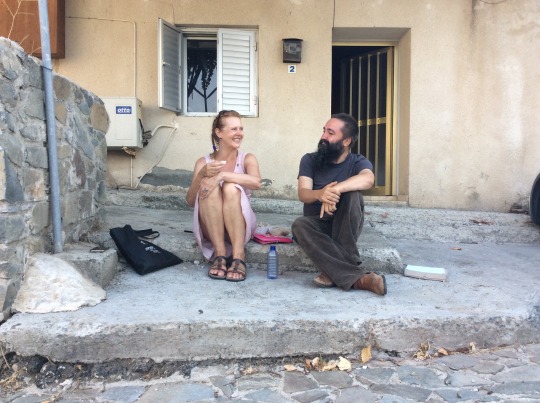
I believe you were still living in Moscow at the time. Later I understood through the photos on Facebook that you had settled in Siberia, in a small house in a small village. It looked rough with a lot of snow and ice.
It also had a certain allure, the white icy cold world you inhabited then.
I never thought we would meet in Berlin this winter. It was glad to see you, your hair is shorter.
The reason we could see each other in Berlin was sad.
The war.
The dirty mean war.
The border that was closed just after you fled your homeland with your dog. Petr is still in Istanbul.
Waiting for a visa.
Your dog too.
Has that changed now?
He had been waiting for more than six months.
This war, a year now.
Who would have thought that a war would be raging at this time in Europe?
I remember the wall.
Yes, I live long enough to remember that Europe was organized differently. No European Union.
An Iron Curtain, Russia was called USSR.
A large territory.
Many countries annexed.
Everything had started after the second world war, a war with a huge impact on how the world was divided after the signed peace.
I wasn't there then.
But my parents did.
And my family.
The stories and of course the huge impact on Rotterdam, my hometown, bombed flat twice.
By the Germans, while the Netherlands had already capitulated.
By the English, a mistaken bombardment.
Now I read daily in the newspapers about the bombing in the Ukraine, it feels strange and sad, powerless too.
Oh my dear Masha, I have friends there, they are all fantastic artists, just like you two.
I don't know how to express the sadness I feel inside me.
Sometimes I cry in the morning, like a child that has lost its mother in a crowd.
Masha, I am so thankful that you are all still alive.
It has become a diaspora again.
You are now studying in Halle.
Small student town in the vicinity of Leipzig.
Leipzig, former East German city full of punks, trees and art.
Halle with her Wunderkammer.
This Wunderkammer, have you already visited it dear Masha?
All colonial souvenirs crammed together in a tiny show room.
Sawfish dried, hanging in space.
A very popular souvenir at the time, the sawfish were already extinct after a few years.
That's how it goes.
We travel and take things with us.
Collect.
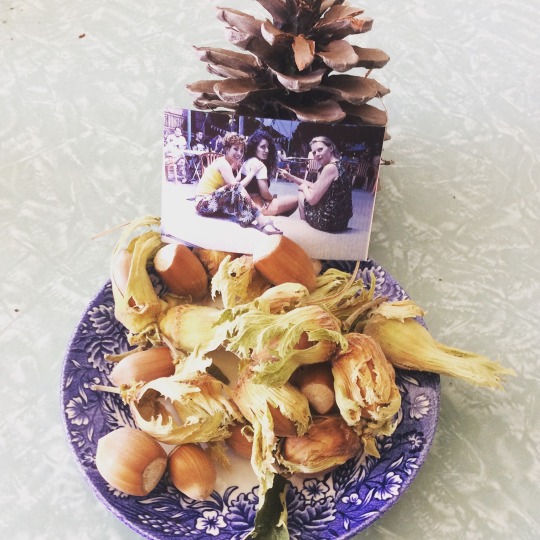
Today I started an artist residency in Mexico City.
It is International Women's Day today.
I admire the solidarity of the women here, a big demonstration is being organized this afternoon in the center and many institutions are closing their doors for this afternoon.
I remember my first women's day, long ago in Rotterdam.
All women took to the streets in solidarity.
Now the women's day has become a small celebration there.
It seems that the need is no longer there.
I doubt that: there is still so much to do, what to think about femicide, rape, sexual deprivation, women trafficking, inequality in pay for work, the areas where women are still married off and have no education and training, cannot walk around without male guidance etc.
It all seems so okay in Western countries, but we are not there yet.
I think.
I feel.
Dear Masha I am writing to you and by writing to you I am actually writing to myself.
I will be 65 this year.
Sixty five years.
A whole age.
It feels strange, this number.
It is the year in which many retire.
Or start thinking about it.
An age that cuts many off from the bustling life: in the eyes of many, being senior means no longer being seen, no longer being heard and filling your time with family, grandchildren and, above all, doing fun things.
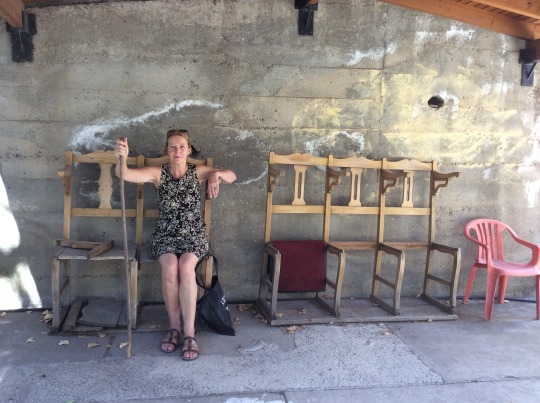
Help.
I don't want to retire, I love my job, I don't have small children and I live far from my family.
I'm already doing fun things.
Help.
I know I'm exaggerating but still…I still feel young and strong and actually I'm only now feeling a little better about my aging skin.
That is confrontational.
The body that ages and timidly shows the first signs.
Difficult for me, because I've focused so much on my body since childhood, the almost anorexic time since I was fourteen.
Always think about being skinny enough.
Never been really happy with my body, my skin, my face, my hair and now suddenly I realize that what people generally say is true: Jacquie you are beautiful.
I am beautiful.
Finally.

I am beautiful with my wrinkles.
Yet I still buy the creams that promise me that this process can be stopped, and sometimes I look in the mirror with surprise in the morning.
How did this happen? Millimetre by millimetre, gravity does its job.
Still, I think I'm more beautiful than when I was so much more.
My veins swell, my hands show a river landscape of blue swollen veins, they twist anarchically on the back of my big white hands with her long fingers. My hands are a combination of my parents' hands.
The size is my father's, the shape and length of my fingers too.
And the nails are sometimes on my father's side and sometimes on my mother's side.
But my middle fingers definitely belong to my mother: crooked at the end, yes, the last part is definitely crooked.
With her middle fingers too.
My mother is no longer alive.
Neither does my father.
I am orphan.
Only child.
Alone on the world.
I realize that I am next in line: I live on the way to my mortality, death, which awaits me.
I get it out of my consciousness but it's quite difficult.

My right leg has all that my mother had: the veins teeming lush and blue, fine network, interspersed with larger veins on the surface of my skin.
They sometimes knock a warning sign to me: 'Yes, we are already here, enjoy every day, know that the time you have left is precious.'
Time.
I was so young and of course never thought about the time.
Whole days, whole weeks even I faltered.
Smoking.
Staring into the distance.
How were you dear Masha when you were young?
What was it like growing up under communist rule?
I was in a family who were immensely grateful to Canadians and Americans. My parents who had been through a war, had known hunger, and they met during a dance evening with music from a dance orchestra: Glenn Miller's In the mood, American music was popular.
The music I grew up with: Peggy Lee, Fats Domino, Tommy Dorsey, Ella Fitzgerald and the Ink Spots.
A little later Tom Jones, big sex idol, from my mother.
The black and white television with two channels.
Tom Jones singing on a catwalk, screeching the women and tugging at his tie, leaning benignly over to let them do so.
Mama was glued to the tube drooling and I, as a little girl, was so amazed at all this excitement.
Later, also on television, Frank Zappa in concert, with groupies showing their naked breasts, my mother laughing on the couch.
The years of the sexual revolution, the man with long hair and the women on the anti-conception pill.
I timid and prudish.
Times of great change.
Working women. Birth control. Nudist beach. Pop music. Youth culture. Study possible for the working class.
Traveling with the Magic Bus, without a toilet, rocking and sweating to Portugal, three days on each other's lips.
The news from all over the world on a small moving black and white square in the living room.
I remember the moon landing, I was still young and already in bed.
My father woke me up.
“You have to see this,” he said, I sat on the chair in front of the television, drowsy.
A vague image as it was then.
We didn't need sharpness and pixels yet.
A man in a white suit, an inverted fishbowl on his head and stumbling through the landscape of the lunar craters with a flag in his hands: stripes and stars.
I think the USSR planted a flag there too, didn't you dear Masha?
I can google it for us.
Google knows everything.
I used to think that if it came to the year 2000, we would stop eating fruits and vegetables and bread and cheese and nuts and so on.
I thought we'd get three pills a day on a plate and robots would be all over the city, silver shapes with angular movements. haha.
The robots, the future as it was visualized at the time.
Wi-Fi.
That's it.
Computers everywhere.
The first, plump plastic beige cube with a gray screen and strange sounds. Even weirder what you saw, I couldn't imagine it.
Incomparable to the slim stylized lab-tops we know today.
The cell phone.
I still remember the first time I saw someone with a big piece of plastic in his hand, screaming in the street, it seemed to no one.
I thought, "Oh dear, this gentleman needs help, a psychiatrist or something." But no, it was progress.
It seemed like a failure to me, this project of communicating without a cord anywhere in a telephone screaming.
Intrusive conversations, way too loud.
I couldn't imagine people would want this, it would certainly quickly disappear from the street scene.
Hahaha.
I spend at least a good three hours a day on my phone or computer Masha. You too?
And now we have the white chunks of plastic in the ears, cellphone in hand, eyes fixed on a hazy infinity.
Sight and sound shielded.
What will follow?
It is clear to me, probably one day I will stop following all the new technologies being developed.
That's allowed, as an excuse I have my age, hihihi.
Or not.
Who knows.
I’ll write you more tomorrow dear Masha, I'm going to find our photos and hug you from afar, you in Halle, me in Mexico City.
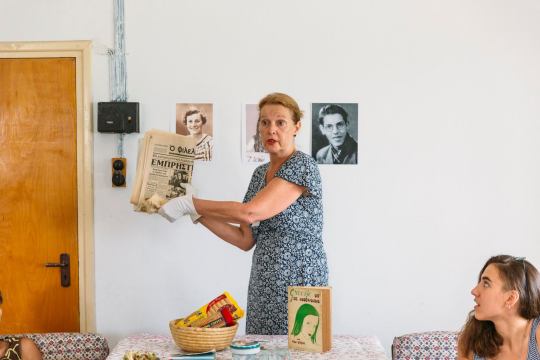
Until then!
With love,
Jacquie
0 notes
Text
Drinking Alcoholics Under the Table
I was tailored made for alcoholism. My genetic makeup includes nearly all of the heavy-hitting drinking cultures - Russian, German, English, Scottish, American Indian. I have an alcohol tolerance reserved for Irish dockworkers. This is dangerous for a person with my brain. Addictive personalities rarely manifest themselves with sound financial planning and physical fitness. Instead, I got hooked on cigarettes and strong drink. Also self-destructive patterns of behavior, self-loathing, and anger. You know, the classics. Factor in that profound Catholic and Jewish guilt and you get a tattooed Sailor crawling across his bathroom floor at the 3 in the morning during the working week praying for his own death in between trips to the toilet bowl.
I know all the clichés and shitty jokes about drinking and alcohol. I know all the synonyms for drunk. I know how to make it, drink it, use and abuse it. I know every culture that has ever existed on this planet has figured out a way to intoxicate itself. Which makes sense when you think about it. The world is a better place with a drink in you. Jokes are funnier, music is better, and life isn't so rough. So yes, people get drunk. Even Muslims, who don't drink alcohol, often drink fermented honey. Intoxication, in one form or another, is global.
I started drinking in earnest because I had no idea who I was when I took my uniform off after work. That isn't an exaggeration. I never cultivated serious hobbies that I couldn't drink while pursuing. I never had a family of my own that required my full-time attention. I was a playboy. Utterly. Everyone who really knows me knows this is true. With no interests that don't include drinking, no sense of self, and an addictive personality, I was as sure of needing treatment as the Cleveland Browns are of missing the playoffs.
I drank everything... I once dehydrated myself so badly that after drinking three quarts of water I took a piss for the first time that day, five hours after I woke up, and it came out like rust. I once threw up at a stop sign on the way to work. I once threw up walking down the pier to my ship... at 6:30 in the morning. I've woken up in strange bedrooms, confused, and looking for the cat that shit in my mouth during the night. I've lied about my drinking and hid it. I got away with it for so long on active duty because I'm somewhat charming and on good days I'm kind of funny. People let things go more easily when you do that. Was I ever an alcoholic? I don't know, but I know I could sit at a table full of alcoholics and drink them under the table.
I learned a lot on the way to the wacko basket. I learned more in it and afterward. I learned I didn't have a problem; I had a solution I didn't like. I had to get honest with myself and that's a brutal conversation to have. I also learned I had my entire chain of command in my corner. That, more than anything, is the most important part of this piece. I know a lot of you reading this are on active duty, and I know a lot of you are scared about seeking help. So let me kick you the real deal for a bit.
After I admitted I was suicidal, and I got help for my whole host of issues, I never, NEVER, not once, got hit for my problem. I never took so much as a counseling chit for getting help. My evaluations made no mention of treatment. What I did get was 30 grand worth of in-patient treatment for free. No one looked down on me or thought me weak because I got help. I was treated with more decency than I've ever been treated with in my entire Navy career.
The Navy's Drug and Alcohol Program Advisors are actually there to help. You cannot go begging for help AND expect to get off the hook for a crime you already committed, but you can refer yourself BEFORE you're in deep shit and make progress. In making progress you may very well understand not only yourself but the world in which you live. You may gain a deeper sense of empathy, and believe me, empathy is one of the most powerful traits you can possibly possess. You become a better human being in the process.
The last salute comes for all of us in uniform. Once that uniform comes off for good you're just another person who was in the Navy once, and no one really cares how many medals you earned or how many people you lead. What's going to really matter, in those places between the flesh and the bone, the parts people will talk about when you finally pass away, is what kind of human being you were. My chain of command and friends supported me the whole ride through and forgave me for my sins when I finally had to courage to admit them. I learned a lot of lessons, some of which I've detailed, but none more important than this: we can all stand to be forgiven.
0 notes
Text
45
Elliot was not prescribed new medication because the one he was taking worked. He and Mike were frustrated. They invited George to join in their conversation since he was a father figure for him. Elliot was not mentally well. Why was he so adamant about not taking the medication? He told them about the side effects. The medication also inhibited his ability to be creative. He used to be able to see another world with animals and people like his invisible friends.
They remembered that. How would he make movies if he couldn’t be creative? It would be like taking away Mike’s ability to create music or art. They understood what he was saying. As an actor, George couldn’t imagine what it would be like to not be able to have the creativity required for his job. Being a producer was his dream, just as the acting was his. He was so happy on set because it was his second home.
As a child, he was excited to be there every day. Hi, George! That’s what he used to say to him with a big smile. He used to tell whoever would listen about the stories he came up with in his head. They were quite elaborate and entertaining. The first time he met him, he told him all about the drama between his Barbie dolls. He couldn’t remember most of the stories he told him because there were so many. No, he wouldn’t know what it was like to lose that part of him.
At the same time, his schizophrenia would get worse without medication. There was a risk of suicide, hospitalization, addiction, being arrested, homelessness, or being victimized by people who didn’t understand his condition. He had already harmed himself, which he couldn’t remember doing.
They learned that disassociation was sometimes a part of schizophrenia, though it was rare. His arm was healing nicely. What if he harmed himself again? He had too many disorders and illnesses to keep track of. Mike got a piece of scrap paper and a pen. As he was getting ready to write all of them down, Anna came over and was invited to join the conversation. She introduced herself to Mike before saying hello to George.
“Elliot…”
“ADHD, anxiety, PTSD, PTSD psychosis, schizophrenia, Tardive Dyskinesia, and bipolar disorder with possible Borderline Personality Disorder and Dissociative Identity Disorder.”
“You’re kidding”, George said in disbelief.
“Unfortunately, no. He’s not”, Mike said.
“What’s Tardive…”, Anna asked.
Tardive Dyskinesia was a medication-related tic disorder. His bipolar disorder was genetic from his mother. She also had a histrionic personality disorder and narcissistic personality disorder. George sighed. It was worse than he thought. He wanted him to be on medication because he deserved to have a healthy mind. What about the languages he spoke? English, German, French, Spanish, Mandarin Chinese, and Japanese. He used to know some Italian and Arabic but he lost them.
How the hell did he know five languages? He learned them through workbooks. She was impressed! He used to drive his father crazy because he never knew what he was saying. They laughed. He had been tested as a child and he was considered very intelligent, though not quite a genius. Especially with languages. He loved learning about languages, history, cultures, and people.
“We got off track here a little. What would help you get your creativity back? Playing with dolls”, George asked.
“That might not be a bad idea. Maybe buying one or two dolls might help him. It’s worth trying out”, Anna suggested.
“Yeah. You want to go to Target”, Mike asked.
“That’s like asking me if I want to go on a date with Jon Bon Jovi. The answer is fuck yeah”, Elliot said excitedly.
They laughed. The four of them got their stuff and then followed Mike out to his car. He had a car seat in the back for his son, Otis. They could still fit. George sat up front while Anna and Elliot sat in the back. Target. George didn’t mind going there, though he had his assistant get everything he needed. It was an interesting place with everything he needed or wanted. He wondered if anyone would recognize him.
The store was busy but not bad. It was a Friday afternoon, so people were getting things for the weekend or the following week. Kids were also out of school, so they were there with their parents. There was a display for the upcoming holiday, Christmas. It was October and they were already planning Christmas. On one end were the office supplies and on the other were the groceries. With toys, clothes, and everything else in the middle. In the front corner was Starbucks. They could smell the coffee as they walked past it.
They were tempting them with their seasonal drinks. They were different every year and were very popular. Gingerbread lattes or Pumpkin Spice lattes with seasonal cookies and cake pops. They found their way to the toy aisle, where kids were picking out what they wanted from their parents for Christmas. Mommy, I want this one! They were able to squeeze by and head to the Barbies.
“Oh my god. I feel like I’m ten years old again”, Elliot said.
It was an interesting selection. The prices had probably gone up in the past fourteen years. What dolls did he have? He had around four or five dolls. The ones he remembered having been Gymnastics Barbie, Ken, and the Princess Diana doll. He also had animals and various accessories. At most, he carried around two at a time. A woman overheard them talking.
Did he say he had the Princess Diana doll? Yes, he did. Did he still have it? No, sorry. He donated his dolls to a hospital when he was thirteen. She had been looking for it and couldn’t find it.
“Dang. She’s probably very expensive now. You could try maybe eBay or Amazon.”
“I’ll try there. Thank you!”
“You’re welcome!”
He chose after much consideration, Couture Barbie and African American Holiday Barbie, a collector’s item. Mike joked about him having a room dedicated to Barbie. He should, though he’d have to keep the door closed, so the animals couldn’t get in. When was he going to get his animals? They made a plan for him to go over to Mike’s the following day.
They probably thought he abandoned them. Bark and Otis were best friends. Oh my god. That was adorable! He laughed. Elliot joked that they had to get out of the toy aisle before he bought all of the dolls. Since they were there, they decided to get other stuff as well. He had heard about ginger beer. It was nonalcoholic and very delicious. That’s what Brad had told her and he wasn’t going to question him. He said he and Rob loved them.
They found a case of them near the different brands of water. Anna was enjoying herself as they walked around. Elliot’s mood had improved considerably! He was excited and happy. That was the person who she and everyone on the set of Pitch Perfect knew and had become friends with. Mental illness was not easy but she was learning to enjoy every second of his good mood.
@zoeykaytesmom @feelingsofaithless @alina-dixon
1 note
·
View note
Text
My journey
How have I evolved during the 4 years of International Business, what has been my journey?
Honestly, when I chose this study it was purely because it was a general economic study which fitted with my high school profile. I had no idea what I wanted for my own career and I was only 16 years old. So, how could I have known already? This study drew my attention, because it offered to go abroad twice and also the course Spanish. Spanish always was a language I wanted to learn, only sadly after registering I found out that they took Spanish out of the study, so I had to choose between French and German. Also going abroad was not as intended. The first time was cut short due to the corona-virus. The second time I didn’t even go, as everything was still not back to normal, also due to the corona-virus. All these setbacks did not stop me to work hard to get my degree. One point on which I have been developed massively, is collaboration. I had to collaborate so much through these four years. Every semester there were multiple assignments on which I had to work with different people. This has made me more flexible by adjusting every time and better at communicating, as everyone communicates different and you have to adjust yourself every time.
When I started IB I was one of the youngest students, but had no problem connecting with the older ones. For example Rojda was four years older than me, but we connected from the start. I was a quite confident 16 year old, who made it seem like she knew it all, but definitely did not. I had always been in classes with people one year older, as I skipped one class when I was at the start of primary school. This made that I had the knowledge these people also had, plus that my mother is a woman who is critical towards the world. This made that my critical thinking was developed early on. This personality trait has brought me far, as I also went all alone to Valencia to do my internship there. I was confronted with so many new things there, culturally, socially etc. Whilst being there I have made lifetime friends, one of who I now live with in Amsterdam. Through this time apart and now my time living in Amsterdam, I have been introduced to so many different cultures. It is so interesting to me how people do things different from me. I am also that person that just asks random questions if I meet you for the first time. Just because I am genuinely interested in you and your way of living. I want to be aware of what other people I am surrounded by.
I was not a very active student the first year, as I had to get used to the scheduling of school. I also wanted to work a lot and sometimes school suffered from this. Nevertheless, I nearly received my P by two points. I must say that this study has flew by, as there were not many contact hours a week. The pandemic has also made a huge impact on this. It feels as if I only studied two years. I am also a student who lives from deadline to deadline and needs stress to perform good. This has been changing a bit over the last year. I used to do everything last minute, but the last year I have been starting the work at the beginning of the course, to divide the work more. This has been so much less stressful than before and I will continue to work like this. This works way more innovative and leaves time to be more creative in these projects/portfolios.
All these points conclude my personal and professional development during my four years at IB. The ethical and social responsibility of me has been discussed thoroughly in my IB portfolio.
0 notes
Note
Excuse Me what is pulp and why is it importan?
Good question! And probably one I should have answered sooner. Time to put on the historian hat for this one.
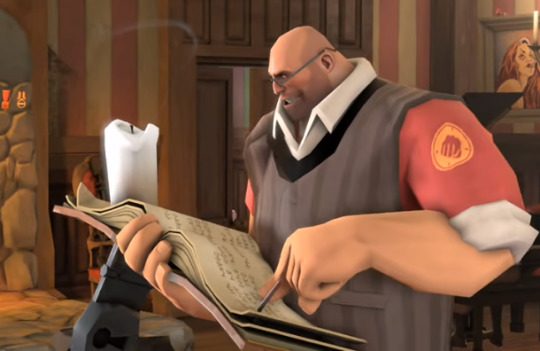
"Pulp" is a term used mainly to describe forms of storytelling that sprang out or were dominant in 20th century cheap all-fiction American magazines from the 1900s to the 1950s. The pulp magazine began in 1896, when Frank Munsey's Argosy magazine, in order to cut costs, dropped the non-fiction articles and photographs and switched from glossy paper to the much less expensive wood pulp paper, hence the name. The pulp magazines would mainly take off as a distinct market and format in 1904, when Street & Smith learned that Popular Magazine, despite being marketed towards boys, was being consumed by men of all ages, so they increased page count and started putting popular authors on the issues.
It was specifically the 1905 reprint of H.Rider Haggard's Ayesha that not only put Street & Smith on the map as rivals to Argosy, but also inspired other companies to start publishing in the pulp format. Pulps encompassed literally everything that the authors felt like publishing. Westerns, romance, horror, sci-fi, railroad stories, war stories, war aviation stories. Zeppelins had a short-lived subgenre. Celebrities got their own magazines, it was really any genre or format they could pull off, anything they could get away with.
Nowadays, although they came quite late in it's history, the American pulps are most famous for it's "hero pulps", characters like The Shadow and Doc Savage that are viewed as a formative influence on comic book superheroes. The pulp magazines in America lasted until the 1950s, when cumulative factors such as paper shortages, diminishing audience returns and the closing of it's biggest publishers led to it dying off, although in the decades since there's always been publishers calling their magazines pulp. That's the American pulp history.

But pulps are a phenomenon that spans the entire world and has a much bigger history to it, because pulps have become synonymous with cheap fiction magazines and those have a much bigger history. In America, before the pulps, you had the dime novels, the direct predecessors of the pulps, as well as the novelettes. England had it's penny dreadfuls and story papers, and continued publishing pulp-format magazines past the American 1950s, and that's how we got Elric of Melniboné. France and Russia arguably got to it first with it's 1800s coulporters, chapbooks and particularly the feuilletons which lasted all the way to the 20th century and created characters such as Arsene Lupin, Fantomas and The Phantom of the Opera. The Germans published pulp under the name hefteromane. Japan also published pulp magazines both original as well as imported, and the current "light-novel" phenomenon started off as an equivalent of pulp magazines (it's even on the Wikipedia page). China has wuxia, Brazil has cordel, Italy has gialli. There were Indian, Persian, Ethiopian, Canadian, Australian pulps and much more. Look anywhere in the world and you'll find examples of "pulp" happening again and again, under different circumstances and time periods.
Even if we stick to American fiction, it's impossible to state that all pulp heroes must come from the 1900s-1950s pulp magazines, because that forces us to exclude some of the most popular pulp heroes like Indiana Jones, Green Hornet, Rocketeer and The Phantom. Pulp may have once been a term meant to refer to pulp magazines exclusively, but it's morphed and lost structure and it's become the closest thing we have to a general umbrella term that allows us to try and consolidate these under a shared history. It's a lot, as you can see, and it's why several pulp historians that broaden their scope outside of 1930s American fiction have adopted Roland Barthes's definition of pulp as "A Metaphor With No Brakes In It", which is still the closest thing to a true working definition we have.

Why is it important? You tell me. I don't like to stake claims about stuff being "important", everyone's got their own priorities in life. Surely a lot of people would scoff at the idea of old populist fiction published in what was functionally equivalent to toilet paper having any sort of "importance". On the other hand, some people definitely want to talk big about the pulps as a cultural bedrock of fiction, something that's baked into the lifeblood of all fiction as we currently know it. Which it is, mind you, but I don't like to talk about pulp fiction's value being derived mainly from merely the things it inspired.
There is definitely a historical importance to be had in cataloguing them. According to the US's foremost pulp researcher Jess Nevins, 38% of all American pulps no longer exist, and 14% of all American pulps survive in less than five copies. Many libraries have very scant, if any, records on them, many collectors are hard to locate and are uncooperative when it comes to sharing information and letting outsiders view their collections. A lot of them are bound up in legal complications that prevents them from taking off in the public domain, and a lot of them ARE public domain but are completely inacessible as research material. And that's the American pulps, foreign pulps have fared far worse in posterity, with records inaccessible to people unfamiliar with the language or locations, many existing merely in mentions on decades-old records, and hundreds if not thousands of them being completely gone beyond recovery or recall.
Gone, dead, wasted, destroyed. They can't be found in barbershops or warehouse or bookstores, not even in antique stores. Hundreds, thousands of characters, stories and creators, gone. Time and posterity have crushed them to dust, forgotten and ignored by their successors. Unfettered by pretenses of respectability that repressed their glossier counterparts, in packages meant to be destroyed after reading, proudly announcing itself as trash. Things that should have never even lasted as long as they did have died many times now. It's heroes peripherical shapeshifters, nearly all of whom seem dead, quite dead, as dead as fictional characters can possibly be.
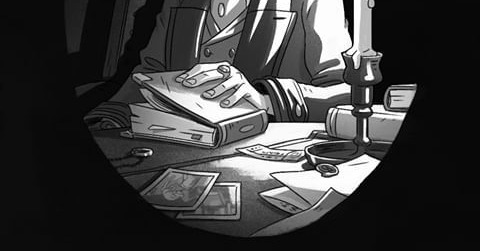
But they do not die forever. Many of them have, maybe most of them have, but many of them linger on.
"The strange red flickering of 1930’s fiction seems distant now. You hold in your hand the product of a time too remote to recall, and feel a slow stir of wonder. The smell of pulp pages, an illustration, an advertisement, these fragile things mark the slow hammering of time and display what it has done. About you are today’s machines, today’s shadows.
Outside the window, leaves hang against the sky, as did leaves during the 1930’s. The sound of voices are no different then than now. You hold the magazine and feel something quite delicate slipping past. These solid forms surrounding you are all insubstantial. Time’s hammer will also pass across them, leaving little enough behind." - Spider, by Robert Sampson
Many of the things people call dead are just things that have been sleeping for a while or haven't had the chance to be born. Pulp fiction is dead on the page, inert, unless your imagination breathes live to it, and every now and then, one way or another, these characters dig themselves out of dustbins. Maybe it's a brief revival, maybe it's a successful reboot. Maybe they find publishers, or maybe the public domain allows them to find new life. Maybe new creators do interesting things with them, and maybe, just maybe, they live again because some won't shut up about them online. Some curious impulse led you to me, did it not?
We all have our Frankensteins to obsess over, and these are some of mine. As someone who's lived a life perpetually restless over pursuit of knowledge, pulp has lured me like a moth to flame, because I literally never run out of things to discover within it, I never run out of possibilities. As the years pass and the public domain starts being more and more open to the public, more and more narrative real state is brought forth for writers and artists and creators to play around.
Pulp is the dark matter of fiction, the uncatalogued depths of the ocean, the darkest recesses of space. It's the box of your grandfather's belongings, the treasure you find in an attic, a body part sticking out from an old playground. It's the things that don't work, don't succeed, the things that don't fit, that are out of place. That shouldn't live and succeed, and did so anyway. The things that slither in the cracks, the shadows behind the curtain.
Aren't you interested in peering on what's behind the curtain?

The exquisite workmanship of the head, of a pre-pyramidal age, and the hieroglyphics, symbols of a language that was forgotten when Rome was young–these, Kane sensed, were additions as modern to the antiquity of the staff itself as would be English words carved on the stone monoliths of Stonehenge.
As for the cat-head–looking at it sometimes Kane had a peculiar feeling of alteration; a faint sensing that once the pommel of the staff was carved with a different design. The dust-ancient Egyptian who had carved the head of Bast had merely altered the original figure, and what that figure had been, Kane had never tried to guess.
A close scrutiny of the staff always aroused a disquieting and almost dizzy suggestion of abysses of eons, unprovocative to further speculation. - The Footfalls Within, by Robert E Howard, quoted by Stuart Hopen’s The Mythic American Culture
463 notes
·
View notes
Text
Fallout 4 Random Companion Headcanons
Wrote these a few years ago, too nervous then to share them.
Ada
-Ada was built in 2268. She's about 21 years old.
-Her first memory is of seeing The Mechanist in front of her. Then she watched as The Mechanist removed their head and smiled.
-She's Isabel's first project.
-Her voice was originally supposed to be more synthesized and robotic, but the more human sound was easier for Isabel to work with.
-Ada prefers to travels in groups with 3-4 people, knowing fully well a robot is a higher target for scavvers.
- Her base body was constructed from many different trial runs of the "ADA" project.
-She's programmed to remain indifferent but the nagging voice in her programming says to do good things in order to to aid other people.
-Ada appreciates the effort Sole goes through to upgrade her body. She doesn't think it's necessary and she's somewhat sentimental about her original form.
-She finds Codsworth's attachment to Sole strange. Almost too human, those Mr. Handy's.
Cait
-Cait loves baths. Bubble baths with bath bombs and even a little rubber ducky. Only Sole knows this.
-The rubber ducky's name is Codsworth. Will not explain why.
-Can fire a rifle over her shoulder behind her. (Annie Oakley style)
-Hates Jazz music. Says it's too slow and calm. Really dislikes it because she's uncomfortable slow dancing with anyone.
-Allergic to feathers. Rad chickens make her sick to be around.
-But once the feathers are removed, the chicken has been cut up, and cooked with some veggies and a loaf of bread, loves it.
-Chicken soup is her favourite dish. Only likes Sole's chicken soup though. Will not eat anyone else’s.
-Shot put would be her favourite sport. Throwing a heavy metal sphere a very long distance is goals.
Codsworth
-Codsworth can speak 8 languages. Including: English, Spanish, French, Japanese, German, Italian, Polish, and Swedish.
-Can recognize almost every written language and translate but lacks the programming to speak every one.
-Nate/Nora got him two years before Shaun was born.
-Sole did minimal repair work on him, and offered to polish him every time he got a dent or scratch.
-He always accepted the polish offer. Very wary of Sole doing factory repairs on him. Would prefer professionals doing the delicate work.
-Always celebrated Nate/Nora and Sole’s respective birthdays. For 200 years.
-When Sole called him "Family", he felt an odd electric pulse through his core processor. He decided to call it a skipped heart beat.
-Calls synth Shaun "Sonny", and "Young Master Shaun".
-Makes Sole's favourite meal when they come back home from Vault 111.
-Will ask to take over if he catches Sole doing chores.
-Hesitates when he has to bring up Sole's spouse knowing it's a touchy subject.
-His favourite friend of Sole's is Nick. Thinks Nick is a good role model for synth Shaun.
Curie
-Curie, like Codsworth can speak 8 languages. However, after becoming a synth, she can only speak about 4.
-Curie loves the feeling of velvet. Collects pieces of velvet clothing.
-Once wore a velvet cape around because she loved the way it draped over her shoulders and fluttered when she walked.
-Has sensory phases. Music, nice noises, soft materials, different foods, perfumes, etc. Collects whatever makes her senses happy.
-During the "feeling phase" her favourite feeling was holding Sole's hand. Loved running her hand over the surface of water. And velvet.
-Talks out what her feelings are with Piper. Piper explains to her what the "spin spin spin" in her head meant.
-Favourite smell is fresh baked bread. Bakes bread with Mama Murphy every weekend.
-Favourite sweet food is mutfruit pie. Will badger Piper to make it with her.
-Curie's motor functions are still new. Sometimes she misses what she was trying to grab and fumbles.
Danse
-Danse is a horrid mechanic. You'd think spending time in the BoS and dedicating time to auto repair with Ingram. Can't put a toaster together.
-But Power Armor is a piece of cake. Can't do much with pre-war tech, yet fixing power armor is as easy as making breakfast.
-Like all gen 3 synths, he loves Fancy Lad snack cakes. He'd share whatever box he'd find with the squires around the Prydwen.
-Scribe Haylen would volunteer to work alongside Danse on all his scouting missions.
-Danse found out Deacon was the one who stuck the dildo to his power armor. He made sure Deacon's wigs were the same bright purple color the very next day.
-Loves country music. When a traveling courier stops by and shares their western/country music, he actually dances.
-Has a heart for kids. Even Billy.
-Leg bouncing habit. Can't bounce his leg in power armor but as soon as he's out, his leg's jittering.
Deacon
-Deacon is in his late 40's.
-Did not lie about his wife and the University Point Deathclaws.
-Enjoys learning about Pre-war culture, spends free time with ghouls asking them about the past.
-Sole can fool him easily about prewar facts though.
-Has incredible luck with the pie claw game. Has won 8 times while traveling with Sole.
-Loves making silly bets. "I bet I can skip this plate across the lake at least 1 time." Proceeds to throw the plate at the water horizontally.
-Doesn't hate Danse. He will pull pranks on him though. Once stuck a dildo on the back of Danse's power armour.
-His hair grows quickly so he has to shave every day.
-Shaves his head, isn't bald. Shaved head works better with his pompadour wig.
-Doesn't like mutfruit. Says it's too acidic and hurts his gums.
-Has a rifle-shaped scar on his forearm. Will tell a different story for it every time.
-Once drank a dozen Nuka Cola Quantums on a dare. His pee glowed for a week.
-Tried going vegetarian once. ONCE. Found out being vegetarian means eating no meat or dairy products. Had to have Sole explain that, while gross, radroach could technically be considered meat.
-Is kinda clumsy. Always bumps into counter edges and stubs his toes on bits of debris.
-Doesn't lie about his family. And when Sole calls him family, promises to never lie about family again.
Gage
-Gage juggled skii balls to entertain the last Overboss, Colter.
-He enjoys small shooting competitions with MacCready, Sole, and X6. All four are sharp shooters.
-Fastest learner. Spent an entire week learning how to cook Sole's old recipes. He can cook them better than anyone with the exception of Codsworth.
-Hums when he works.
-Had a one night stand with Nisha. Ended so bad, he avoids that area of the park at all costs.
-Hates cats. Had an awful run in with a rad lion. Radiated Mountain Lion that tore a scar deep down his back.
-Does routine maintenance on the rides in the park. He knows how everything works there. From social hierarchy - to the intricacies of the Vault Tec: Among the Stars ride.
-His favourite flavour of Nuka Cola is Nuka Cola Victory. Rare to find but easily the best.
-Record farthest shot is a bean can from 410 meters.
-He's a lightweight. Only two beers and he's buzzed enough to sing along with Red-Eye.
-Will tell a different story every time if anyone asks about the eye patch.
Hancock
-Hancock is a history buff. Loves learning about colonial era civilization.
-Has spent days with Kent Connolly researching Silver Shroud information. He knows more about the Silver Shroud than any other companion.
-Has had a fling with every person in Goodneighbor at least once. Even Kleo.
-At least in a sexual way, he is extremely open minded. Welcomes new experiences and new information given anywhere anytime.
-Had a decent childhood with his brother. He remembers tending to the mutfruit trees with him and eating every other piece they picked.
-Adores pickles. Would sit and eat an entire jar of pickles just because he loves the cronch so much.
-All time favourite chem is Mentats. Loves making intellectual jokes while high as a kite.
-Does not know what a lot of pre-war expressions mean, but enjoys saying them and hearing them from Sole.
-Is a master at repairing clothing. How else does the frock stay in such good condition? He tends to it every night.
-As far as euphemisms for ghouls go, he likes "beef jerky".
Longfellow
-Longfellow met Hannah while out hunting. She blasted a trapper's head clean off, and he fell harder than the trapper's body.
-He spent his youth training, hoping to become a Brotherhood soldier one day.
-And then he met a vertibird full of them. They called Far Harbor a dump while gathering supplies there. Officially decided to cease all training.
-Managed to take down 17 Mirelurks in 3 minutes.
-Holds the record in Acadia for alcohol consumption. All records involving alcohol consumption.
-He's really fit? Longfellow could and has bench pressed Sole.
-He only did so because Hancock and MacCready wouldn't shut up about it.
-Loves singing old shanty songs and dancing with Sole. Only when no one else is around though.
-After the events at Far Harbor, he decides to go sailing along the coast. Wants to see the world more.
MacCready
-MacCready does brush his teeth. He brushes his teeth regularly. He started brushing after he left Little Lamplight. By that point the damage was already done.
-Lucy was the one to convince him to brush his teeth.
-He can't stand the smell of lavender. Lavender candles, lavender lotion, etc...makes him feel nauseous.
-He named his sniper rifle, "Lucy"
-Won't drink brahmin milk with cereal even to Sole's encouragement.
-Is very well read. Vault 87 had many educational textbooks hidden among the super mutants.
-MacCready was the longest lasting mayor in L.L. He was mayor for 6 years.
-He has no idea what television is and is afraid to ask any pre-wars about it.
-Wary of all ghouls, both feral and normal. He's not bias to non-ferals, but he is a little uncomfortable.
-Had a crush on Lone Wanderer when they first visited L.L. Mac told Joseph and he made fun of him.
Nick
-Nick has an oral fixation. Smokes out of habit and having the familiar feeling of a cigarette between his lips feeds into human nostalgia.
-His right hand is missing skin because he fidgets only his right. Whether it was picking at the fraying plastic or rubbing the fake skin raw.
-He lost the chunk of neck skin after Myrna accused him of working for the Institute. Tore off a chunk to prove he wasn't a perfect person or an infiltrator synth.
-Ellie was the first person in Diamond City to wholly accept Nick as he is. She asked to work with him as soon as he decided to stay.
-Piper and Nick have jam sessions where they have heavy debates about Diamond City law enforcement and criminal misuse of power in the capitalistic society of pre-war USA.
-Met Dogmeat under an overpass. He handed the dog a snack cake and scratched his head. They've been close pals ever since.
-Will "sleep" around Sole. He'll lay down and manually put himself into "sleep mode". Any unnecessary functions will shut down. He lets his thoughts take over. All Sole hears is the faintest fan whir.
Piper
-Piper plans Sole's 211th birthday. She goes all out, collects balloons, bakes several cakes with Codsworth, makes everyone attend and threatens anyone who would act up. "It's Blue's first birthday out here, you WILL behave!"
-Knows how to make mutfruit preserves, mutfruit pie, mutfruit jam and jelly. Makes it for Nat constantly.
-Has a notebook dedicated to little tidbits of info about Sole.
-Nat is exactly 8 years, 5 months, and 25 days younger than Piper.
-Piper has interviewed every person in Diamond City. Made a game of it with Nat at first, then she just kept going with it.
-Piper has awful shorthand. Almost as bad as Curie's shorthand. Still illegible.
-Piper's handwriting is so bad, Nat does the writing for the paper. Piper writes the final draft and Nat copies it, and sends it through the printing press.
-Despite bad handwriting, Piper is very eloquent. Can make a super mutant sound like good date idea or convince anyone how the mayor might actually be a synth.
-Her favourite of Sole's friends is Kent Connolly. Would gladly dress up and act out Silver Shroud episodes with him and Sole.
Preston
-Preston has insomnia. Cannot sleep well. Has had insomnia since Quincy.
-Can sleep well if he's sleeping beside someone.
-Has a box under his bed of little knick-knacks children have given him over the years. Can't bear to get rid of the kid's gifts.
-He actually likes all of Sole's friends. Even Strong.
-Hates coconut. Once found an Almond-Joy while scaving and couldn't finish it to save his life.
-All time favourite candy is Peanut Brittle. Hard to find but gnawing on the hard chunks is somewhat soothing to him.
-Loves back rubs. Giving and receiving but only from close friends or lovers.
-Once accidently drank a bottle of perfume. MacCready told him it was a bottle of fancy expensive wine.
-Sturges and Preston are the closest of friends, no less maybe more.
Strong
-Strong knows how to jump rope.
-But double dutch is a mystery.
-Before Sole, he only ate meat raw. Sole taught him how to cook it.
-Also lacks patience to cook, but slowly learning.
-Strong was created in Vault 87 after the bombs dropped but remembers nothing from being human.
-Doesn't understand bubblegum. Will always swallow it after a few seconds of chewing.
-Likes having poetry and plays read to him.
-Sleeps holding Sole or having Sole laying across his stomach.
-Loves fire. The smell, the feeling of heat against his hardened skin, the taste of charred meat, and watching the embers fly up and turn to ash.
-Strong can read, but chooses not to because super mutants discourage any educational behavior.
-Likes the sound of clacking keys on a terminal. He'll turn one on and mess around with the keyboard just to hear the different sounds each key makes.
-He can't decide if hand-to-hand combat is better than using guns.
X6-88
-X6 doesn't like using plasma. He thinks the plasma is less accurate.
-But laser weapons are his jam.
-Spends excessive amount of time augmenting his weapon.
-If Sole helped, he would be "happy". Would never say it, but a tiny smirk would pop up on his face for half a second.
-Will collect Fancy Lad Snack Cakes. Hoards them in his bedroom in Sanctuary and in the Institute.
-Sole found his stash and X6 blushed for the first time when they confronted him.
-He called Sole "Mom" instead of Ma'am once. She won't let him live it down.
-He called Sole "Dad" after hearing Shaun call him "Dad" all day. He won't let him live it down.
-Actually likes kids. Won't show emotions, get down to their level, or speak to kids. But he doesn't hate children.
-Especially likes synth Shaun. He taught synth Shaun how to use a laser pistol. Shaun found out and put X6 on probation for a month.
Bonus Vault Tec Rep and Kent Connolly under the cut.
Vault Tec Rep
-Rep spent a couple decades learning how to draw. Loves drawing from life. Mostly draws people. Occasionally draws ferals, mutants, and various animals.
-Was engaged before the war, lasted about 2 years before she died of cancer.
-His favorite food was and still is a well grilled medium rare steak.
-A total neat freak. Every space he uses as a homestead has to be thoroughly cleaned of any bacteria, ticks, dust, dirt, radiation residue, etc
-Teased in school for his red hair. "Rusty" was his least favorite nickname.
-He's extremely susceptible to pet names. Doesn't have to be anything sexual or romantic, just pet names. He blushes like a starstruck starlet.
-Loves love. Romance and old-timey corny love stories. He like to woo his partner. Flowers, chocolate, dancing, movie dates, hand written poems, you name it.
-He misses his old red hair. Years of being a brunette and he's a little bitter about his hair.
-Least favourite part of The Wasteland is amount of bodies he sees on a daily basis. He saw about zero bodies a day on average before the war. Even in Goodneighbor, the average has risen to about 4 bodies a week.
-Favourite part of The Wasteland is the ability to just go anywhere. After realizing he didn't have any obligation to stay any specific place, he just traveled around for a few decades.
-His father worked for Vault-Tec, and when he graduated high school, he was given a job immediately.
-Didn't hate it. Didn't love it at first, but he had a real knack for selling.
-He never had an office in Boston HQ. He got the van, and got a sweet bonus for being top salesman, but never his own office.
-Despite being top salesman, he was only allowed on the first and second floors. He didn't find out till after the bombs dropped that the basement and third floor up had the plans for the various vaults in the area.
-He can't apologize enough to Sole. After thinking on it and checking out vault 111 by himself, he truly feels sorry for what happened.
-Sole gets him a set of steak knives for Christmas. They're homemade by Sole. They tell him he's earned far more than a knife set, but if that's what he's pining for...
-He treasures it so much, he rarely uses them. Just before he leaves for work in the morning, he checks them over and admires them.
-He and Sole have spent days just telling each other pre war stories. He almost knows more about Sole than Piper does. And he's a little proud of that fact.
-He gets along best with, of all people, Deacon. Good sense of humour and always interested in pre-war info.
-Second best is Piper. A nice lady who snoops too much, but does treat everyone with respect and tries to remain unbiased.
Kent Connolly
-Kent was 23 when the bombs dropped.
-He was sleeping in on the Saturday morning when he heard the air raid sirens.
-Hid in his house's basement till the sirens stopped.
-And then the radiation sickness took over.
-It took him about 3 months to turn ghoulish. Quicker than most.
-He dislikes Goodneighbor - the town as a whole. The people are fine, the resources are serviceable, and the safety assured is nice. But he hates how back alley it feels.
-Misses his family the most. They weren't the best, but they made him feel loved and important.
-Speaking of which, Kent had a huge family. I'm talking brothers, sisters, cousins for days, aunts, uncles...he remembers family reunions as huge gatherings chock full of food and kids running amuck.
-Maybe, just maybe, he enjoys seeing Sole all dressed like Shroud a little too much. He's a big fan.
-Once spent 4 grand on a mint condition Issue no. 3 Silver Shroud comic just to find out it was a forgery. Never got that refund. :(
-Writes really well. But only writes Silver Shroud fanfiction. Piper almost convinced him to help write an article about how crime differed before the war and after the war. But he turned her down.
-Nick has agreed to dress up as Shroud if Sole dresses up like Grognak or Mistress of Mystery. But only if Sole dresses up too.
-Irma refers to him as her son. Amari will not say the same, but she also doesn't protest.
-He used to work in comic book shop. (Of course he did.)
-He writes self insert Silver Shroud fanfiction all the time. After the events at the hospital with Sinjin, the Shroud in his fanfictions suddenly start using Sole's pronouns and is described as physically similar as Sole.
#Fallout 4#Fallout 4 headcanons#Fallout#Ada#Cait#Codsworth#Curie#Danse#Deacon#Gage#Hancock#Longfellow#MacCready#Nick Valentine#Piper Wright#Preston Garvery#Strong#X6-88#Vault Tec Rep#Kent Connolly#my writing#Sole Survivor
494 notes
·
View notes
Text
Anonymous asked: I have always appreciated your thoughtful views on the defence of the British monarchy, and as a university historian it’s reassuring to see someone using history to make invalubale insights to a controversial institution. I wonder what are your own thoughts on the passing of Prince Philip and what his legacy might be? Was he a gaffe prone racist and a liability to the Queen?
I know you kindly got in touch and identified yourself when you felt I was ignoring your question. I’m glad we cleared that up via DM. The truth is as I said and I’m saying here is that I had to let some time pass before I felt I could reasonably answer this question. Simply because - as you know as someone who teaches history at university - distance is good to make a sober appraisal rather than knee jerk in the moment judgements.
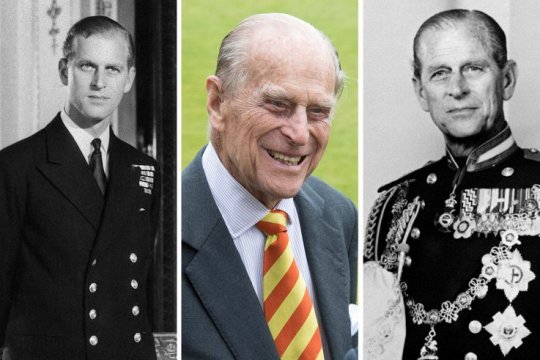
Contrary to what some might think I’m not really a fan girl when it comes to the royal family. I don’t religiously follow their every movement or utterance especially as I live in Paris and therefore I don’t really care about tabloid tittle tattle. I only get to hear of anything to do with the royal family when I speak to my parents or my great aunts and uncles for whom the subject is closer to their heart because of the services my family has rendered over past generations to the monarchy and the older (and dying) tight knit social circles they travel in.
Like Walter Bagehot, I’m more interested in the monarchy as an institution and its constitutional place within the historical, social, and political fabric of Britain and its continued delicate stabilising importance to that effect. It was Walter Bagehot, the great constitutional scholar and editor the Economist magazine, who said, “The mystic reverence, the religious allegiance, which are essential to a true monarchy, are imaginative sentiments that no legislature can manufacture in any people.” In his view, a politically-inactive monarchy served the best interests of the United Kingdom; by abstaining from direct rule, the monarch levitated above the political fray with dignity, and remained a respected personage to whom all subjects could look to as a guiding light.
Even as a staunch monarchist I freely confess that there has always been this odd nature of the relationship between hereditary monarchy and a society increasingly ambivalent about the institution. To paraphrase Bagehot again, there has been too much ‘daylight’ shone onto the ‘magic’ of the monarchy because we are obsessed with personalities as celebrities.
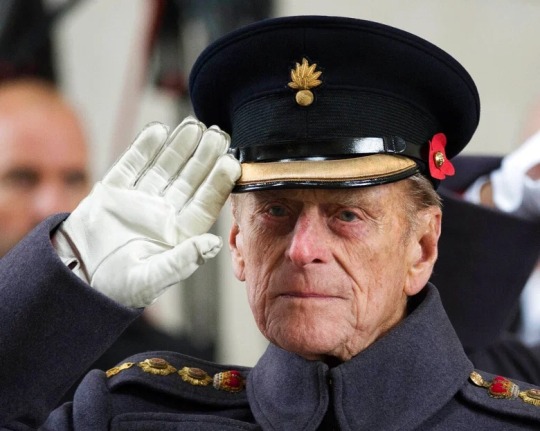
Having said that I did feel saddened by the passing of Prince Philip, the Duke of Edinburgh. After the Queen, he was my favourite royal. Anne, Princess Royal, would come next because she is very much like her father in temperament, humour, and character, so unlike her other brothers.
I have met the late Prince Philip when I was serving in the army in a few regimental meet-and-greet situations - which as you may know is pretty normal given that members of the royal family serve as honorary colonel-in-chiefs (patrons in effect) of all the British army regiments and corps.I also saw him at one or two social events such the annual charitable Royal Caledonian Ball (he’s an expert scottish reeler) and the Guards Polo Club where my older brothers played.
I’ll will freely confess that he was the one royal I could come close to identify with because his personal biography resonated with me a great deal.
Let’s be honest, the core Windsor family members, born to privilege, are conditioned and raised to be dull. Perhaps that’s a a tad harsh. I would prefer the term ‘anonymously self-effacing’, just another way of saying ‘for God’s sake don’t draw attention to yourself by saying or doing anything even mildly scandalous or political lest it invites public opprobrium and scrutiny’. The Queen magnificently succeeds in this but the others from Charles down just haven’t (with the exception of Princess Anne).
However, many people forget this obvious fact that it’s the incoming husbands and wives who marry into the Windsor family who are relied upon to bring colour and even liven things up a little. And long before Kate Middleton, Meghan Markle (very briefly), or Lady Diana Spencer, were the stars of ‘The Firm’- a phrase first coined by King George VI, Queen Elizabeth II's father who ruled from 1936 to 1952, who was thought to have wryly said, "British royals are 'not a family, we're a firm,” - it was Prince Philip who really livened things up and made the greater impact on the monarchy than any of them in the long term.
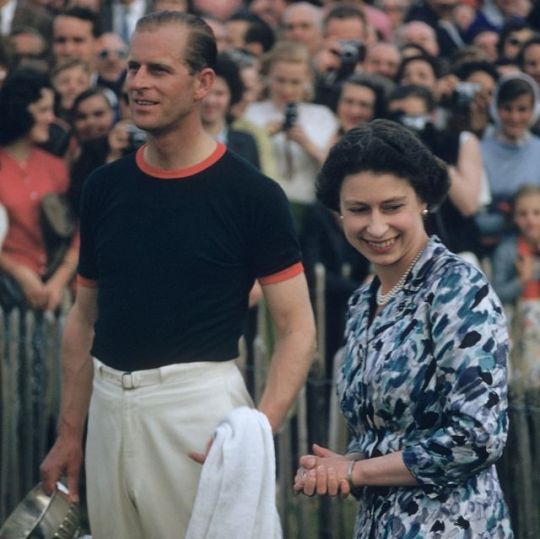
Prince Philip’s passing belied the truth of a far more complex individual: a destitute and penniless refugee Greek-Danish prince with a heart breaking backstory that could have been penned by any 19th Century novelist, and also eagle eyed reformer who tried to drag the royal family into the 20th century. At the core of the man - lost scion of a lost European royal dynasty, a courageous war veteran, and Queen’s consort - were values in which he attempted to transform and yet maintain much older inherited traditions and attitudes. Due to his great longevity, Philip’s life came to span a period of social change that is almost unprecedented, and almost no one in history viewed such a transformation from the front row.
Prince Philip would seem to represent in an acute form the best of the values of that era, which in many ways jar with today’s. He had fought with great courage in the war as a dashing young naval officer; he was regularly rude to foreigners, which was obviously a bonus to all Brits. He liked to ride and sail and shoot things. He was unsentimental almost to a comic degree, which felt reassuring at a time when a new-found emotional incontinence made many feel uncomfortable. Outrageous to some but endearing to others, he was the sort of man you’d want to go for a pint with, perhaps the ultimate compliment that an Englishman can pay to another Englishman. This has its own delicious irony as he wasn’t really an Englishman.
There are 4 takeways I would suggest in my appraisal of Prince Philip that stand out for me. So let me go through each one.
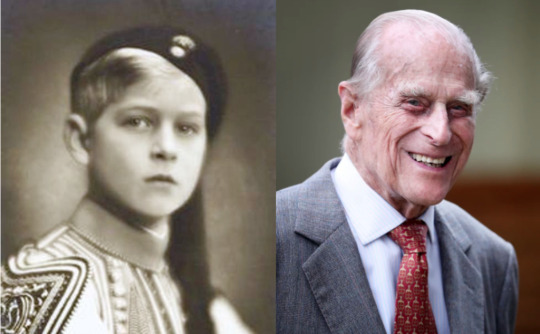
1. Prince Philip’s Internationalism
It may seem odd for me to say that Prince Philip wasn’t English but he wasn’t an Englishman in any real sense. He was a wretch of the world - stateless, homeless, and penniless. That the Prince of Nowhere became the British Monarchy’s figurehead was more than fitting for a great age of migration and transition in which the Royal Family survived and even flourished. That he was able to transform himself into the quintessential Englishman is testimony not just to his personal determination but also to the powerful cultural pull of Britishness.
He was born on a kitchen table in Corfu in June 1921. A year later in 1922, Philip, as the the great-great-grandson of Queen Victoria and nephew of Constantine I of Greece, was forced to flee with his family after the abdication of Constantine. He grew up outside Paris speaking French; ethnically he was mostly German although he considered himself Danish, his family originating from the Schleswig border region. He was in effect, despite his demeanour of Royal Navy officer briskness, a citizen of nowhere in an age of movement. From a very young age he was a stateless person, nationally homeless. Indeed, Philip was an outsider in a way that even Meghan Markle could never be; at his wedding in 1947, his three surviving sisters and two brothers-in-law were not permitted to attend because they were literally Britain’s enemies, having fought for the Germans. A third brother-in-law had even been in the SS, working directly for Himmler, but had been killed in the conflict.
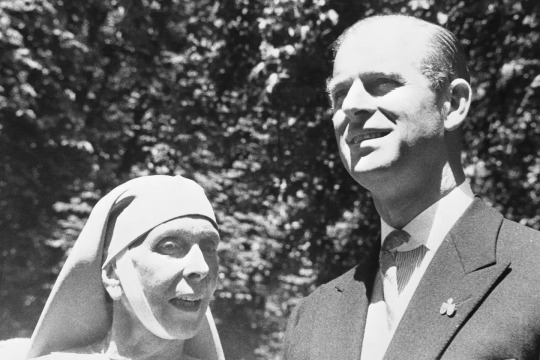
Even his religion was slightly exotic. He was Greek Orthodox until he converted to Anglicanism on marrying Elizabeth - what with his wife due to become supreme head of the Church and everything - but his ties with eastern Christianity remained. His great-aunts Princess Elisabeth of Hesse and by Rhine and Tsarina Alexandra are both martyrs of the Russian Orthodox Church, having been murdered by the Bolsheviks; Philip’s mother went on to become an Orthodox nun and a “Righteous Among the Nations” for saving a Jewish family during the Nazi occupation of Greece, spending much of her time in squalid poverty.
His parents were part of the largely German extended aristocracy who ruled almost all of Europe before it all came crashing down in 1918. When he died, aged 99, it marked a near-century in which all the great ideological struggles had been and gone; he had been born before the Soviet Union but outlived the Cold War, the War on Terror and - almost - Covid-19.
The world that Philip was born into was a far more violent and dangerous place than ours. In the year he was born, Irish rebels were still fighting Black and Tans; over the course of 12 months the Spanish and Japanese prime ministers were assassinated, there was a coup in Portugal and race riots in the United States. Germany was rocked by violence from the far-Left and far-Right, while in Italy a brutal new political movement, the Fascists, secured 30 seats in parliament, led by a trashy journalist called Benito Mussolini.
The worst violence, however, took place in Greece and Turkey. Following the defeat of the Ottoman Empire, what remained of Turkey was marked for permanent enfeeblement by the Allies. But much to everyone’s surprise the country’s force were roused by the brilliant officer Mustafa Kemal, who led the Turks to victory. Constantinople was lost to Christendom for good and thousands of years of Hellenic culture was put to the flames in Smyrna.
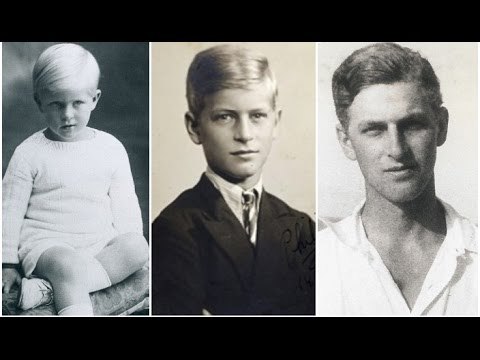
The Greek royal family, north German imports shipped in during the 19th century, bore much of the popular anger for this disaster. King Constantine fled to Italy, and his brother Andrew was arrested and only escaped execution through the intervention of his relative Britain’s George V. Andrew’s wife Alice, their four daughters and infant son Philip fled to France, completely impoverished but with the one possession that ensures that aristocrats are never truly poor: connections.
Philip had a traumatic childhood. He was forged by the turmoil of his first decade and then moulded by his schooling. His early years were spent wandering, as his place of birth ejected him, his family disintegrated and he moved from country to country, none of them ever his own. When he was just a year old, he and his family were scooped up by a British destroyer from his home on the Greek island of Corfu after his father had been condemned to death. They were deposited in Italy. One of Philip's first international journeys was spent crawling around on the floor of the train from an Italian port city, "the grubby child on the desolate train pulling out of the Brindisi night," as his older sister Sophia later described it.
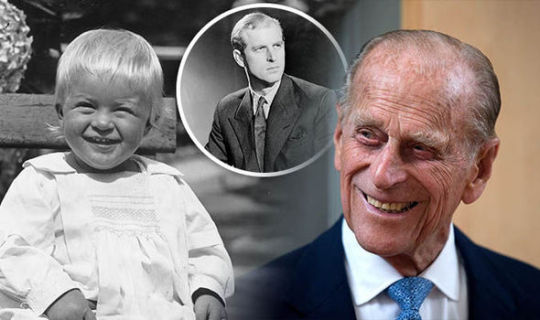
In Paris, he lived in a house borrowed from a relative; but it was not destined to become a home. In just one year, while he was at boarding school in Britain, the mental health of his mother, Princess Alice, deteriorated and she went into an asylum; his father, Prince Andrew, went off to Monte Carlo to live with his mistress. "I don't think anybody thinks I had a father," he once said. Andrew would die during the war. Philip went to Monte Carlo to pick up his father's possessions after the Germans had been driven from France; there was almost nothing left, just a couple of clothes brushes and some cuff-links.
Philip’s four sisters were all much older, and were soon all married to German aristocrats (the youngest would soon die in an aeroplane crash, along with her husband and children). His sisters became ever more embroiled in the German regime. In Scotland going to Gordonstoun boarding school, Philip went the opposite direction, becoming ever more British. Following the death of his sister Cecilie in a plane crash in 1937, the gulf widened. As the clouds of conflict gathered, the family simply disintegrated. With a flash of the flinty stoicism that many would later interpret, with no little justification, as self-reliance to the point of dispassion, the prince explained: “It’s simply what happened. The family broke up… I just had to get on with it. You do. One does.”
In the space of 10 years he had gone from a prince of Greece to a wandering, homeless, and virtually penniless boy with no-one to care for him. He got through it by making a joke of everything, and by being practical.
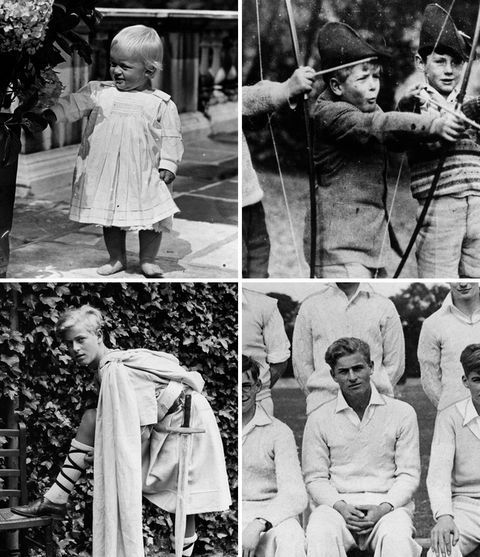
By the time he went to Gordonstoun, a private boarding school on the north coast of Scotland, Philip was tough, independent and able to fend for himself; he'd had to be. Gordonstoun would channel those traits into the school's distinct philosophy of community service, teamwork, responsibility and respect for the individual. And it sparked one of the great passions of Philip's life - his love of the sea. It was Gordonstoun that nurtured that love through the maturation of his character.
Philip adored the school as much as his son Charles would despise it. Not just because the stress it put on physical as well as mental excellence - he was a great sportsman. But because of its ethos, laid down by its founder Kurt Hahn, a Jewish exile from Nazi Germany.
Hahn first met Philip as a boy in Nazi Germany. Through a connection via one of his sister’s husbands, Philip, the poor, lonely boy was first sent off to a new school - in Nazi Germany. Which was as fun as can be imagined. Schloss Salem had been co-founded by stern educator called Kurt Hahn, a tough, discipline-obsessed conservative nationalist who saw civilisation in inexorable decline. But by this stage Hahn, persecuted for being Jewish in Nazi Germany, had fled to Britain, and Philip did not spend long at the school either, where pressure from the authorities was already making things difficult for the teachers. Philip laughed at the Nazis at first, because their salute was the same gesture the boys at his previous school had to make when they wanted to go to the toilet, but within a year he was back in England, a refugee once again.
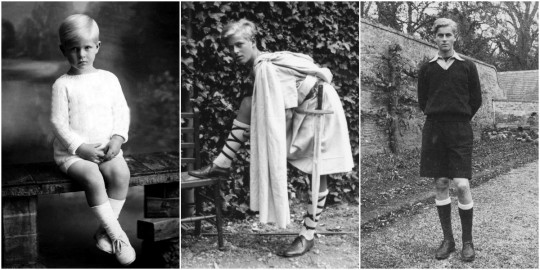
Philip happily attended Hahn’s new school, Gordonstoun, which the strict disciplinarian had set up in the Scottish Highlands. Inspired by Ancient Sparta, the boys (and then later girls) had to run around barefoot and endure cold showers, even in winter, the whole aim of which was to drive away the inevitable civilisational decay Hahn saw all around him. To 21st century ears it sounds like hell on earth, yet Philip enjoyed it, illustrating just what a totally alien world he came from.
That ethos became a significant, perhaps the significant, part of the way that Philip believed life should be lived. It shines through the speeches he gave later in his life. "The essence of freedom," he would say in Ghana in 1958, "is discipline and self-control." The comforts of the post-war era, he told the British Schools Exploring Society a year earlier, may be important "but it is much more important that the human spirit should not be stifled by easy living". And two years before that, he spoke to the boys of Ipswich School of the moral as well as material imperatives of life, with the "importance of the individual" as the "guiding principle of our society".
It was at Gordonstoun one of the great contradictions of Philip's fascinating life was born. The importance of the individual was what in Kurt Hahn's eyes differentiated Britain and liberal democracies from the kind of totalitarian dictatorship that he had fled. Philip put that centrality of the individual, and individual agency - the ability we have as humans to make our own moral and ethical decisions - at the heart of his philosophy.
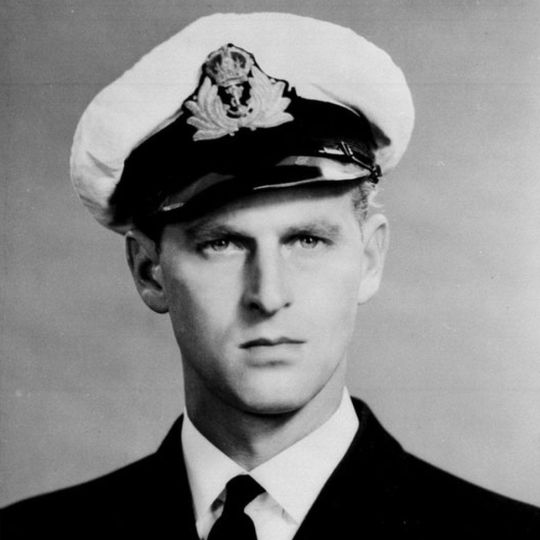
At Dartmouth Naval College in 1939, the two great passions of his life would collide. He had learned to sail at Gordonstoun; he would learn to lead at Dartmouth. And his driving desire to achieve, and to win, would shine through. Despite entering the college far later than most other cadets, he would graduate top of his class in 1940. In further training at Portsmouth, he gained the top grade in four out of five sections of the exam. He became one of the youngest first lieutenants in the Royal Navy.
The navy ran deep in his family. His maternal grandfather had been the First Sea Lord, the commander of the Royal Navy; his uncle, "Dickie" Mountbatten, had command of a destroyer while Philip was in training. In war, he showed not only bravery but guile. It was his natural milieu. "Prince Philip", wrote Gordonstoun headmaster Kurt Hahn admiringly, "will make his mark in any profession where he will have to prove himself in a trial of strength".
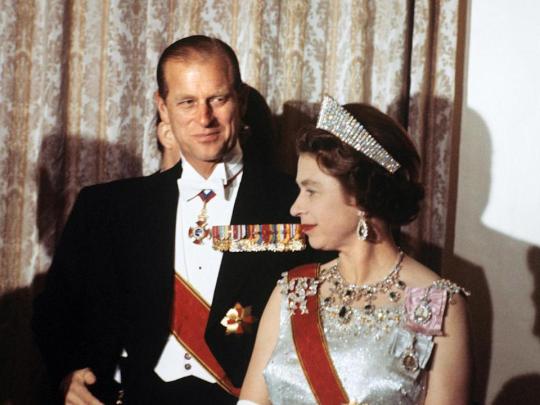
2. Prince Philip and the modernisation of the monarchy
In his own words, the process of defining what it meant to be a royal consort was one of “trial and error.” Speaking with BBC One’s Fiona Bruce in 2011, Philip explained, “There was no precedent. If I asked somebody, 'What do you expect me to do?' they all looked blank. They had no bloody idea, nobody had much idea.” So he forged for himself a role as a moderniser of the monarchy.
He could not have had much idea back in 1939. Back then in Dartmouth in 1939, as war became ever more certain, the navy was his destiny. He had fallen in love with the sea itself. "It is an extraordinary master or mistress," he would say later, "it has such extraordinary moods." But a rival to the sea would come.
When King George VI toured Dartmouth Naval College, accompanied by Philip's uncle, he brought with him his daughter, Princess Elizabeth. Philip was asked to look after her. He showed off to her, vaulting the nets of the tennis court in the grounds of the college. He was confident, outgoing, strikingly handsome, of royal blood if without a throne. She was beautiful, a little sheltered, a little serious, and very smitten by Philip.
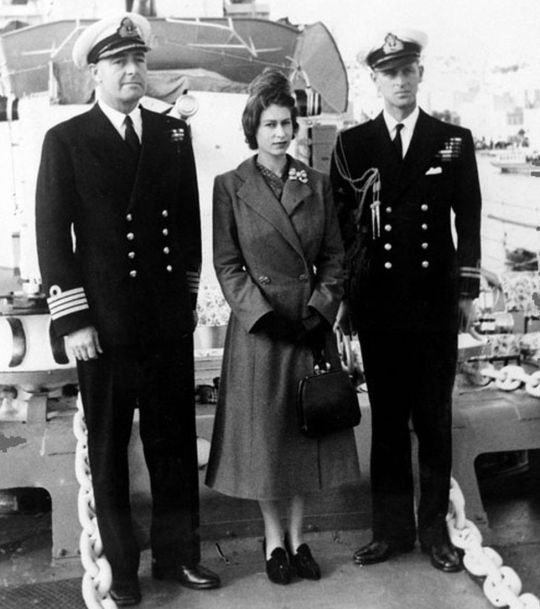
Did he know then that this was a collision of two great passions? That he could not have the sea and the beautiful young woman? For a time after their wedding in 1948, he did have both. As young newlyweds in Malta, he had what he so prized - command of a ship - and they had two idyllic years together. But the illness and then early death of King George VI brought it all to an end.
He knew what it meant, the moment he was told. Up in a lodge in Kenya, touring Africa, with Princess Elizabeth in place of the King, Philip was told first of the monarch's death in February 1952. He looked, said his equerry Mike Parker, "as if a ton of bricks had fallen on him". For some time he sat, slumped in a chair, a newspaper covering his head and chest. His princess had become the Queen. His world had changed irrevocably.
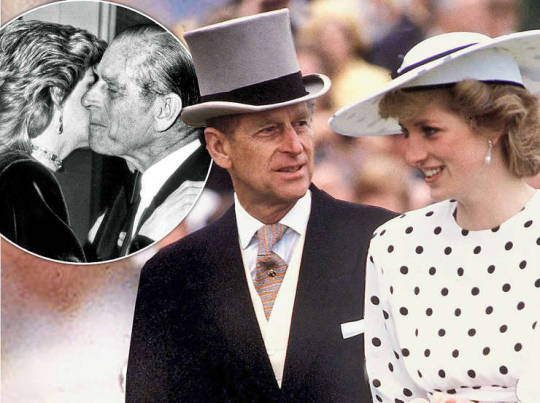
While the late Princess Diana was later to famously claim that there were “three people” in her marriage - herself, Prince Charles and Camilla - there were at least 55 million in Philip and Elizabeth’s. As Elizabeth dedicated her life to her people at Westminster Abbey at the Coronation on June 2, 1953, it sparked something of an existential crisis in Philip. Many people even after his death have never really understood this pivotal moment in Philip’s life. All his dreams of being a naval officer and a life at sea as well as being the primary provider and partner in his marriage were now sacrificed on the altar of duty and love.
With his career was now over, and he was now destined to become the spare part. Philip, very reasonably, asked that his future children and indeed his family be known by his name, Mountbatten. In effect he was asking to change the royal family’s name from the House of Windsor to the House of Mountbatten. But when Prime Minister Winston Churchill got wind of it as well as the more politically agile courtiers behind the Queen, a prolonged battle of wits ensued, and it was one Philip ultimately lost. It was only in 1957 that he accepted the title of “Prince.”
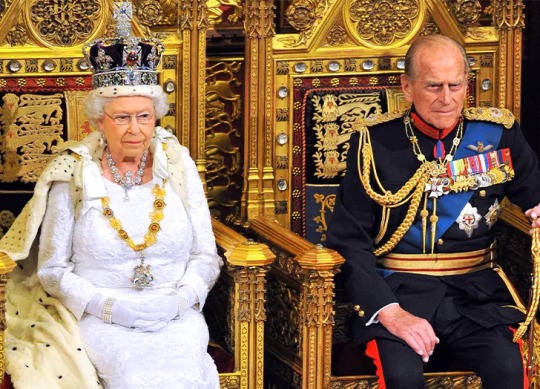
Even though he had almost lost everything dear to him and his role now undefined, he didn’t throw himself a pity party. He just got on with it. Philip tried to forge his own distinct role as second fiddle to the woman who had come to represent Great Britain. He designated himself the First Officer of the Good Ship Windsor. He set about dusting off some of the cobwebs off the throne and letting some daylight unto the workings of the monarchy by advocating reasonable amount of modernisation of the monarchy.
He had ideas about modernising the royal family that might be called “improving optics” today. But in his heart of hearts he didn’t want the monarchy to become a stuffy museum piece. He envisaged a less stuffy and more popular monarchy, relevant to the lives of ordinary people. Progress was always going to be incremental as he had sturdy opposition from the old guard who wanted to keep everything as it was, but nevertheless his stubborn energy resulted in significant changes.
When a commission chaired by Prince Philip proposed broadcasting the 1953 investiture ceremony that formally named Elizabeth II as queen on live television, Prime Minister Winston Churchill reacted with outright horror, declaring, “It would be unfitting that the whole ceremony should be presented as if it were a theatrical performance.” Though the queen had initially voiced similar concerns, she eventually came around to the idea, allowing the broadcast of all but one segment of the coronation. Ultimately, according to the BBC, more than 20 million people tuned in to the televised ceremony - a credit to the foresight of Philip.
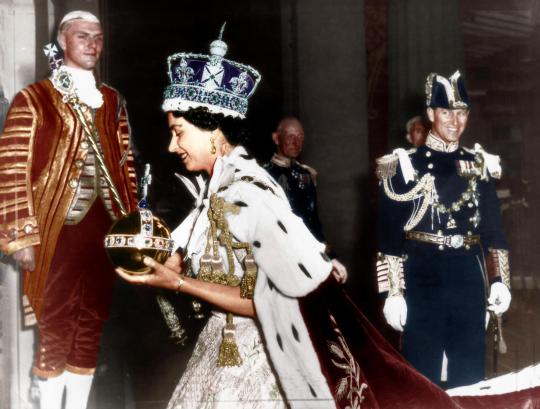
Elizabeth’s coronation marked a watershed moment for a monarchy that has, historically, been very hands off, old-fashioned and slightly invisible. Over the following years, the royals continued to embrace television as a way of connecting with the British people: In 1957, the queen delivered her annual Christmas address during a live broadcast. Again, this was Philip’s doing when he cajoled the Queen to televise her message live. He even helped her in how to use the teleprompter to get over her nerves and be herself on screen.
Four years later, in 1961, Philip became the first family member to sit for a television interview. It is hard for us to imagine now but back then it was huge. For many it was a significant step in modernising the monarchy.
Though not everything went to plan. Toward the end of the decade, the Windsors even invited cameras into their home. A 1969 BBC fly-on-the-wall documentary, instigated by Philip to show life behind the scenes, turned into an unmitigated disaster: “The Windsors” revealed the royals to be a fairly normal, if very rich, British upper-class family who liked barbecues, ice cream, watching television and bickering. The mystery of royalty took a hit below the waterline from their own torpedo, a self-inflicted wound from which they took a long time to recover. Shown once, the documentary was never aired again. But it had an irreversible effect, and not just by revealing the royals to be ordinary. By allowing the cameras in, Philip opened the lid to the prying eyes of the paparazzi who could legitimately argue that since the Royals themselves had sanctioned exposure, anything went. From then on, minor members of the House of Windsor were picked off by the press, like helpless tethered animals on a hunting safari.
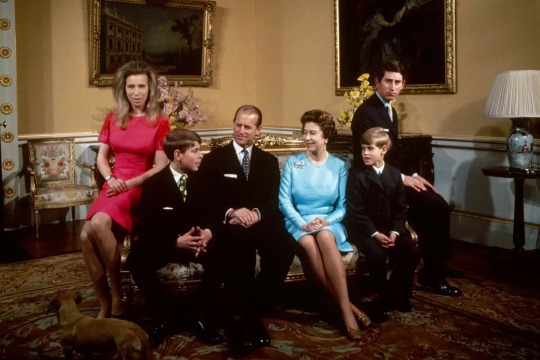
Prince Philip also took steps to reorganise and renovate the royal estates in Sandringham and Balmoral such as intercoms, modern dish washers, generally sought to make the royal household and the monarchy less stuffy, not to have so much formality everywhere.
Philip helped modernised the monarchy in other ways to acknowledge that the monarchy could be responsive to changes in society. It was Prince Philip - much to the chagrin of the haughty Princess Margaret and other stuffy old courtiers - who persuaded the Queen to host informal lunches and garden parties designed to engage a broader swath of the British public. Conversely, Prince Philip heartily encouraged the Queen (she was all for it apparently but was still finding her feet as a new monarch) to end the traditional practice of presenting debutantes from aristocratic backgrounds at court in 1952. For Philip and others it felt antiquated and out of touch with society. I know in speaking to my grandmother and others in her generation the decision was received with disbelief at how this foreign penniless upstart could come and stomp on the dreams of mothers left to clutch their pearls at the prospect there would be no shop window for their daughter to attract a suitable gentleman for marriage. One of my great aunts was over the moon happy that she never would have to go through what she saw as a very silly ceremony because she preferred her muddy wellies to high heels.
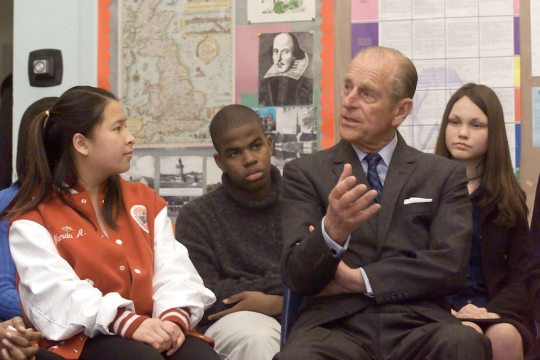
A former senior member of the royal household, who spent several years working as one of Prince Philip’s aides, and an old family friend, once told us around a family dinner table that the Duke of Edinburgh was undoubtedly given a sense of permanence by his marriage into the Royal Family that was missing from earlier years. But the royal aide would hastily add that Prince Philip, of course, would never see it that way.
Prince Philip’s attitude was to never brood on things or seek excuses. And he did indeed get on with the job in his own way - there should be no doubt that when it came to building and strengthening the Royal Family it was a partnership of equals with the Queen. Indeed contrary to Netflix’s hugely popular series ‘The Crown’ and its depiction of the royal marriage with Philip’s resentment at playing second fiddle, the prince recognised that his “first duty was to serve the Queen in the best way I could,” as he told ITV in 2011. Though this role was somewhat ill-suited to his dynamic, driven, and outspoken temperament, Philip performed it with utter devotion.
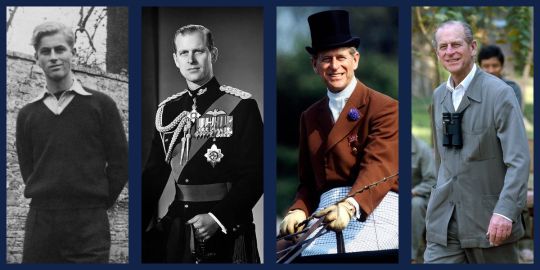
3. Prince Philip’s legacy
One could argue rightly that modernising the monarchy was his lasting legacy achievement. But he also tried to modernise a spent and exhausted Britain as it emerged from a ruinous war. When peace came, and with it eventual economic recovery, Philip would throw himself into the construction of a better Britain, urging the country to adopt scientific methods, embracing the ideas of industrial design, planning, education and training. A decade before Harold Wilson talked of the "white heat of the technological revolution", Philip was urging modernity on the nation in speeches and interviews. He was on top of his reading of the latest scientific breakthroughs and well read in break out innovations.
This interest in modernisation was only matched by his love for nature. As the country and the world became richer and consumed ever more, Philip warned of the impact on the environment, well before it was even vaguely fashionable. As president of the World Wildlife Fund (WWF) in the UK for more than 20 years from 1961, he was one of the first high-profile advocates of the cause of conservation and biological diversity at a time when it was considered the preserve of an eccentric few.
For a generation of school children in Britain and the Commonwealth though, his most lasting legacy and achievement will be the Duke of Edinburgh Awards (DofE). He set up the Duke of Edinburgh award, a scheme aimed at getting young people out into nature in search of adventure or be of service to their communities. It was a scheme that could match the legacy of Baden Powell’s scouts movement.
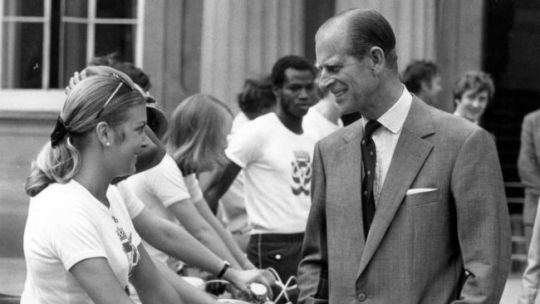
When Prince Philip first outlined his idea of a scheme to harness the values of his education at Gordonstoun by bringing character-building outdoor pursuits to the many rather than the fee-paying few, he received short shrift from the government of the day. The then minister of education, Sir David Eccles responded to the Duke’s proposal by saying: “I hear you’re trying to invent something like the Hitler Youth.” Undeterred he pushed on until it came to fruition.
I’m so glad that he did. I remember how proud I was for getting my DofE Awards while I was at boarding school. With the support of great mentors I managed to achieve my goals: collecting second-hand English books for a literacy programme for orphaned street children in Delhi, India with a close Indian school friend and her family; and completing a 350 mile hike following St. Olav’s Pilgrimmage Trail from Selånger, on the east coast of Sweden, and ending at Nidaros Cathedral in Trondheim, on the west coast of Norway.
It continues to be an enduring legacy. Since its launch in 1956, the Duke of Edinburgh awards have been bestowed upon some 2.5 million youngsters in Britain and some eight million worldwide. For a man who once referred to himself as a “Greek princeling of no consequence”, his pioneering tutelage of these two organisations (alongside some 778 other organisations of which he was either president or a patron) would be sufficient legacy for most.
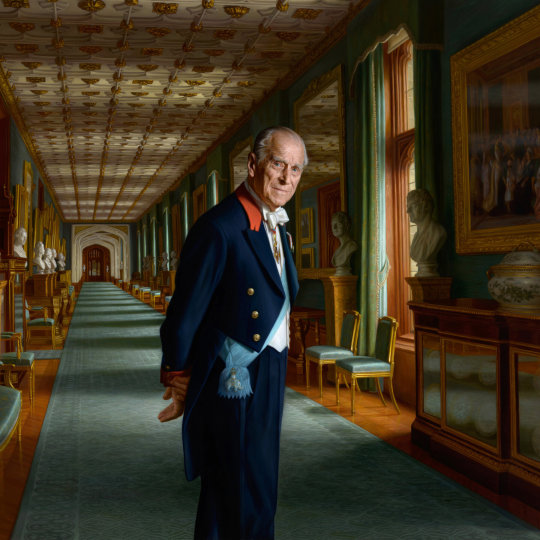
4. Prince Philip’s character
It may surprise some but what I liked most about Prince Philip was the very thing that helped him achieve so much and leave a lasting legacy: his character.
It is unhelpful to the caricature of Prince Philip as an unwavering but pugnacious consort whose chief talent was a dizzying facility in off-colour one-liners that he was widely read and probably the cleverest member of his family.
His private library at Windsor consists of 11,000 tomes, among them 200 volumes of poetry. He was a fan of Jung, TS Eliot, Shakespeare and the cookery writer Elizabeth David. As well as a lifelong fascination with science, technology and sport, he spoke fairly fluent French, painted and wrote a well received book on birds. It’s maddening to think how many underestimated his genuine intellect and how cultured he was behind the crusty exterior.
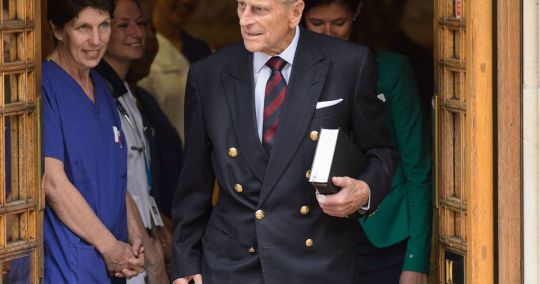
He didn’t have an entourage to fawn around him. He was the first to own a computer at Buckingham Palace. He answered his own phone and wrote and responded to his own correspondence. By force of character he fought the old guard courtiers at every turn to modernise the monarchy against their stubborn resistance.
Prince Philip was never given to self-analysis or reflection on the past. Various television interviewers tried without success to coerce him in to commenting on his legacy.But once when his guard was down he asked on the occasion of his 90th birthday what he was more proud of, he replied with characteristic bluntness: “I couldn’t care less. Who cares what I think about it, I mean it’s ridiculous.”
All of which neatly raises the profound aversion to fuss and the proclivity for tetchiness often expressed in withering put-downs that, for better or worse, will be the reflex memory for many of the Duke of Edinburgh. If character is a two edged sword so what of his gaffes?
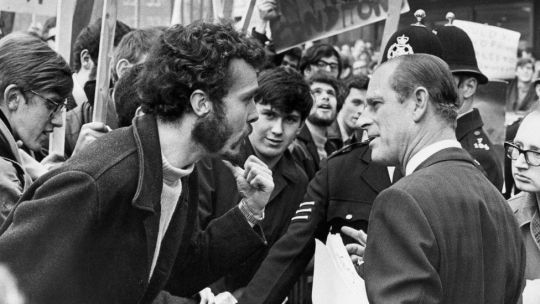
There is no doubt his cult status partly owed to his so-called legendary gaffes, of which there are enough to fill a book (indeed there is a book). But he was no racist. None of the Commonwealth people or foreign heads of state ever said this about him. Only leftist republicans with too much Twitter time on their hands screamed such a ridiculous accusation. They’re just overly sensitive snowflakes and being devoid of any humour they’re easily triggered.
There was the time that Philip accepted a gift from a local in Kenya, telling her she was a kind woman, and then adding: “You are a woman, aren’t you?” Or the occasion he remarked “You managed not to get eaten, then?” to a student trekking in Papua New Guinea. Then there was his World Wildlife Fund speech in 1986, when he said: “If it has got four legs and it is not a chair, if it has got two wings and it flies but is not an aeroplane, and if it swims and it is not a submarine, the Cantonese will eat it.” Well, he wasn’t wrong.
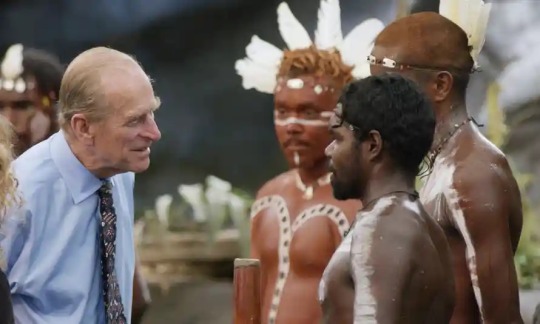
Philip quickly developed a reputation for what he once defined, to the General Dental Council, as “dentopedology – the science of opening your mouth and putting your foot in it”. Clearly he could laugh at himself as he often did as an ice breaker to put others at ease.
His remarking to the president of Nigeria, who was wearing national dress, “You look like you’re ready for bed”, or advising British students in China not to stay too long or they would end up with “slitty eyes”, is probably best written off as ill-judged humour. Telling a photographer to “just take the fucking picture” or declaring “this thing open, whatever it is”, were expressions of exasperation or weariness with which anyone might sympathise.
Above all, he was also capable of genuine if earthy wit, saying of his horse-loving daughter Princess Anne: “If it doesn’t fart or eat hay she isn’t interested.” Many people might have thought it but few dared say it. If Prince Philip’s famous gaffes provoked as much amusement as anger, it was precisely because they seem to give voice to the bewilderment and pent-up frustrations with which many people viewed the ever-changing modern world.
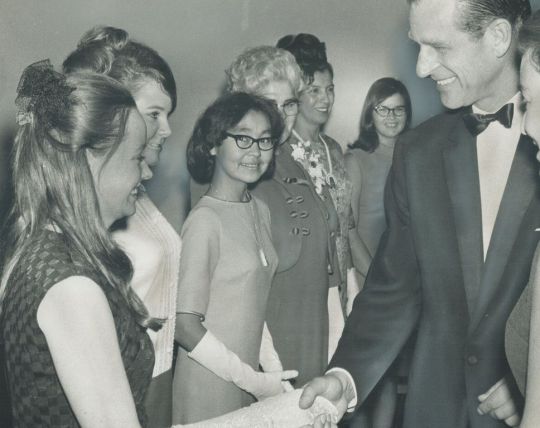
A former royal protection officer recounts how while on night duty guarding a visiting Queen and consort, he engaged in conversation with colleagues on a passing patrol. It was 2am and the officer had understood the royal couple to be staying elsewhere in the building until a window above his head was abruptly slammed open and an irate Prince Philip stuck his head out of the window to shout: “Would you fuck off!” Without another word, he then shut the window.
The Duke at least recognised from an early age that he was possessed of an abruptness that could all too easily cross the line from the refreshingly salty to crass effrontery.
One of his most perceptive biographers, Philip Eade, recounted how at the age of 21 the prince wrote a letter to a relation whose son had recently been killed in combat. He wrote: “I know you will never think much of me. I am rude and unmannerly and I say things out of turn which I realise afterwards must have hurt someone. Then I am filled with remorse and I try to put matters right.”
In the case of the royal protection officer, the Duke turned up in the room used by the police officers when off duty and said: “Terribly sorry about last night, wasn’t quite feeling myself.”
Aides have also ventured to explain away some of their employer’s more outlandish remarks - from asking Cayman islanders “You are descended from pirates aren’t you?” to enquiring of a female fashion writer if she was wearing mink knickers - as the price of his instinctive desire to prick the pomposity of his presence with a quip to put others at ease.
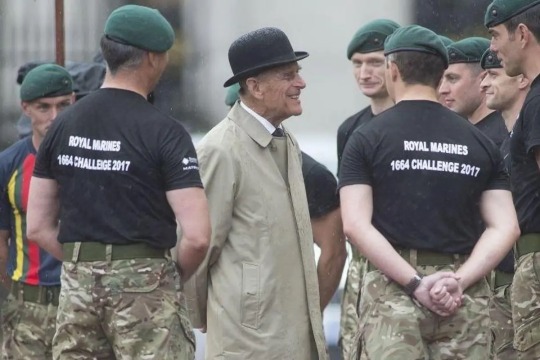
Indeed many people forget that his ‘gaffes’ were more typical of the clubbish humour of the British officer class – which of course would be less appreciated, sometimes even offensive, to other ears. It’s why he could relate so well to veterans who enjoyed his bonhomie company immensely.
But behind the irascibility, some have argued there also lay a darker nature, unpleasantly distilled in his flinty attitude to his eldest son. One anecdote tells of how, in the aftermath of the murder of the Duke’s uncle and surrogate father, Lord Mountbatten, Philip lectured his son, who was also extremely fond of his “honorary grandfather”, that he was not to succumb to self-pity. Charles left the room in tears and when his father was asked why he had spoken to his son with so little compassion, the Duke replied: “Because if there’s any crying to be done I want it to happen within this house, in front of his family, not in public. He must be toughened up, right now.”
But here I would say that Prince Philip’s intentions were almost always sincere and in no way cruel. He has always tried to protect his family - even from their own worst selves or from those outside the family ‘firm’ who may not have their best interest at heart.
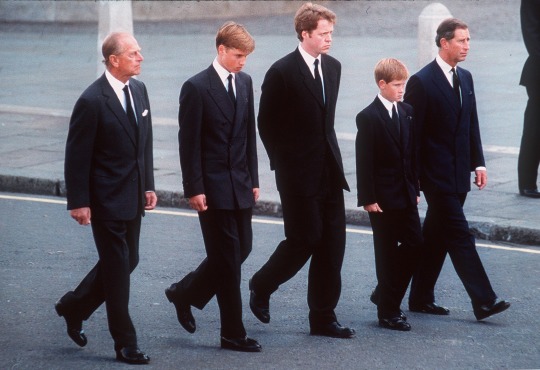
In 1937, a 16-year-old Prince Philip had walked behind his elder sister Cecile’s coffin after she was killed in a plane crash while heavily pregnant. The remains of newly-born infant found in the wreckage suggested the aircraft had perished as the pilot sought to make an emergency landing in fog as the mother entered childbirth. It was an excruciating taste of tragedy which would one day manifest itself in a very princely form of kindness that was deep down that defined Philip’s character.
When about 60 years later Prime Minister Tony Blair’s spin doctors in Downing Street tried to strong arm the Queen and the royal household over the the arrangements for the late Prince Diana’s funeral, it was Philip who stepped in front to protect his family. The Prime Minister and his media savvy spin doctors wanted the two young princes, William and Harry, to walk behind the coffin.
The infamous exchange was on the phone during a conference call between London and Balmoral, and the emotional Philip was reportedly backed by the Queen. The call was witnessed by Anji Hunter, who worked for Mr Blair. She said how surprised she was to hear Prince Philip’s emotion. ‘It’s about the boys,” he cried, “They’ve lost their mother”. Hunter thought to herself, “My God, there’s a bit of suffering going on up there”.’
Sky TV political commentator Adam Boulton (Anji Hunter’s husband) would write in his book Tony’s Ten Years: ‘The Queen relished the moment when Philip bellowed over the speakerphone from Balmoral, “Fuck off. We are talking about two boys who have just lost their mother”. Boulton goes on to say that Philip: ‘…was trying to remind everyone that human feelings were involved. No 10 were trying to help the Royals present things in the best way, but may have seemed insensitive.’
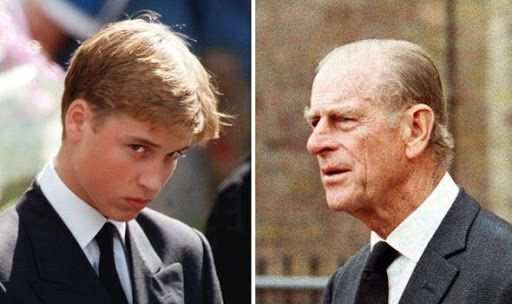
In the end the politicians almost didn’t get their way. Prince Philip stepped in to counsel his grandson, Prince William, after he had expressed a reluctance to follow his mother’s coffin after her death in Paris. Philip told the grieving child: “If you don’t walk, I think you’ll regret it later. If I walk, will you walk with me?”
It’s no wonder he was sought as a counsellor by other senior royals and especially close to his grandchildren, for whom he was a firm favourite. His relationship with Harry was said to have become strained, however, following the younger Prince’s decision to reject his royal inheritance for a life away from the public eye in America with his new American wife, Meghan Markle. For Prince Philip I am quite sure it went against all the elder Prince had lived his life by - self-sacrifice for the greater cause of royalty.
This is the key to Philip’s character and in understanding the man. The ingrained habits of a lifetime of duty and service in one form or another were never far away.
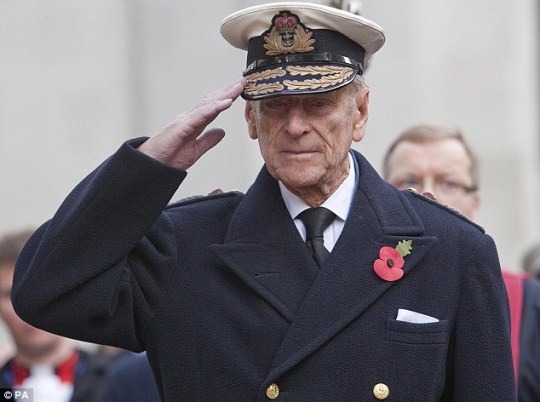
In conclusion then....
After more time passes I am sure historians will make a richer reassessment of Prince Philip’s life and legacy. Because Prince Philip was an extraordinary man who lived an extraordinary life; a life intimately connected with the sweeping changes of our turbulent 20th Century, a life of fascinating contrast and contradiction, of service and some degree of solitude. A complex, clever, eternally restless man that not even the suffocating protocols of royalty and tradition could bind him.
Although he fully accepted the limitations of public royal service, he did not see this as any reason for passive self-abnegation, but actively, if ironically, identified with his potentially undignified role. It is this bold and humorous embrace of fated restriction which many now find irksome: one is no longer supposed to mix public performance with private self-expression in quite this manner.
Yet such a mix is authentically Socratic: the proof that the doing of one’s duty can also be the way of self-fulfilment. The Duke’s sacrifice of career to romance and ceremonial office is all the more impressive for his not hiding some annoyance. The combination of his restless temperament and his deeply felt devotion to duty found fruitful expression; for instance, in the work of Saint George’s House Windsor - a centre and retreat that he created with Revd. Robin Woods - in exploring religious faith, philosophy, and contemporary issues.
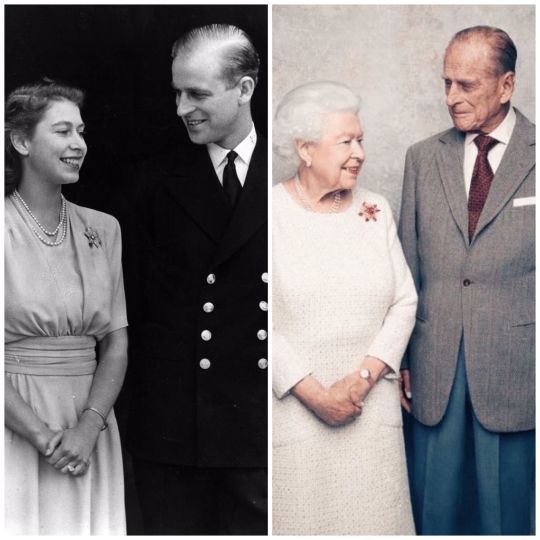
Above all he developed a way to be male that was both traditional and modern. He served one woman with chivalric devotion as his main task in life while fulfilling his public engagements in a bold and active spirit. He eventually embraced the opportunity to read and contemplate more. And yet, he remained loyal to the imperatives of his mentor Kurt Hahn in seeking to combine imagination with action and religious devotion with practical involvement.
Prince Philip took more pride in the roles he had accidentally inherited than in the personal gifts which he was never able fully to develop. He put companionship before self-realisation and acceptance of a sacred symbolic destiny before the mere influencing of events. In all these respects he implicitly rebuked our prevailing meritocracy which over-values officially accredited attainment, and our prevailing narcissism which valorises the assertion of discrete identities.
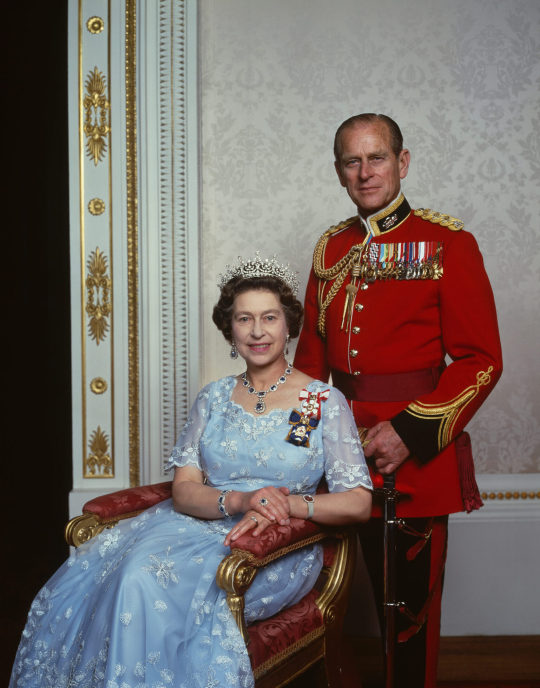
Prince Philip was Britain’s longest-serving consort. He was steadfast, duty driven, and a necessary adjunct to the continuity and stability of the Queen and the monarchy. Of all the institutions that have lost the faith of the British public in this period - the Church, Parliament, the media, the police - the Monarchy itself has surprisingly done better than most at surviving, curiously well-adapted to a period of societal change and moral anarchy. The House of Hanover and later Saxe-Coburg and Gotha (changed to Windsor), since their arrival in this country in 1714, have been noted above all for their ability to adapt. And just as they survived the Victorian age by transforming themselves into the bourgeoise, domestic ideal, so they have survived the new Elizabethan era (Harry-Meghan saga is just a passing blip like the Edward-Wallis Simpson saga of the 1930s).
There was once a time when the Royal’s German blood was a punchline for crude and xenophobic satirists. Now it is the royals who are deeply British while the country itself is increasingly cosmopolitan and globalised. British society has seen a greater demographic change than the preceding four or five thousand years combined, the second Elizabethan age has been characterised more than anything by a transformational movement of people. Prince Philip, the Greek-born, Danish-German persecuted and destitute wanderer who came to become one of the Greatest Britons of the past century, perhaps epitomised that era better than anyone else. And he got through it by making a joke of everything, and by being practical.
I hope I don’t exaggerate when I say that in our troubled times over identity, and our place and purpose in the world, we need to heed his selfless example more than ever.
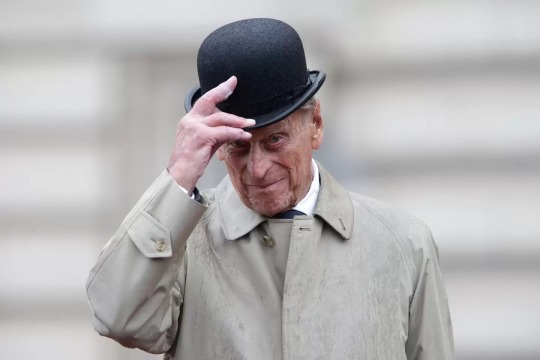
As Heraclitus wisely said, Ήθος ανθρώπω δαίμων (Character is destiny.)
RIP Prince Philip. You were my prince. God damn you, I miss you already.
Thanks for your question.
#question#ask#prince philip#duke of edinburgh#queen elizabeth II#the queen of spades#monarchy#britain#british#royalty#politics#history#culture#europe#crown#icon#great briton#society
284 notes
·
View notes
Note
Yo eirikr. I was interested by your comment on Nahobinos and Kratos, where you dislike when original additions to a story with mythological backdrops are portrayed as better than the myths themselves. Why do you feel that? Or could you just elaborate in general? Not that I disagree or mean to challenge the sentiment, I just wanna see how you'd express it. Also, could you give some other examples of that happening?
Hmm. It's probably a mixture of things.
Just from a literary point of view, it's amusing to me when authors think their characters/concepts are going to exceed myths that have stood the test of thousands of years of time, or remain relevant beyond a decade or two at most. And maybe they don’t even actually think that. But, more often that not, these creations show an ignorance of the mythological material (the thing they are supposed to be about), which is consistently the underlying issue.

Kratos is most relevant here. He’s a super-violent manchild who literally destroys a civilization by the end of his extended murderous tantrum. He’s a poorly-conceived character fueled by the “sad” cliche of a dead wife and child, and someone we are supposed to accept as better than Greek culture because he is physically stronger than all of it.
But this is where that cynical capitalist edge rears its ugly head, in that Kratos is a modern, hyper-masculine power fantasy sold as a product to young men and boys who just saw Gladiator, 300, or recent equivalents and want to “live” that same experience. He’s not a particularly creative creation, as too much creativity can hinder sales. His role is to tell us Greek myths don’t matter; they are old and boring while Kratos is new and iconoclastic. He’s a cultural rebel and the rock sountrack David Jaffe originally envisioned was likely the better fit for the series. But he’s also shallow and only has meaning as consumerist product and avatar of violence while the game is being played.
Thus, American/Greek culture did not transform once Kratos emerged on the scene; he’s just supposed to sell copies of video games, and I guess he has been successful in that regard! But his best-selling games are also teaching the wrong lessons about myths (namely ”they are irrelevant to human experience”) by making ripping gods’ heads off the goal. Meanwhile, Zeus will exist as a cultural concept for another 2000 years+ while Kratos will eventually be replaced by another large-corporation-backed character that’s even more destructive.
Writing is the other angle, the problem being a failure to understand the meaning of myths and so the new and “better” ideas fail to integrate with them. You could probably argue that Kratos was never trying to integrate with Greek myth; thus, the Nahobinos are more germane here as they are supposed to be a “true form” of gods, many of which still have Kaneko designs that look exactly like they’re supposed to, creating a disconnect.

Kratos in God of War 2018 is honestly successful at this at first, fitting into the role of Farbauti, the largely undefined husband of the equally obscure Laufey and father of Loki. Everything else goes off the rails, but particularly with the game’s characterization of Baldur.
Baldur is meant to be the best, brightest, and most beautiful god and is loved by all--all but Loki, who takes advantage of Frigg’s overlooking the “innocent” mistletoe in her effort to make him invulnerable. So of course in GoW 2018, Baldur is a dark and disturbed individual--disturbed because his mythic invulnerability has been twisted so that he can’t feel anything and thus simplified to a dour bad guy you need to kill.
So thus Baldur isn’t the only one twisted, the myth is as well. And for what? To prop up Kratos, your given mass market protagonist, and give reason to have a boss fight that ends in Baldur’s demise. Yes, it’s Baldur’s fate to die but here it’s a celebratory moment of achievement (trophy earned!) bereft of the relevant human grief present in the myth. The myth is rewritten to suit the worldview of Kratos, a psycho killer, and I think this is one of the most egregious examples an “original character portrayed as better than myths” of recent memory. And, ironically enough, “rewriting” myths is also a minor theme in SMT5.
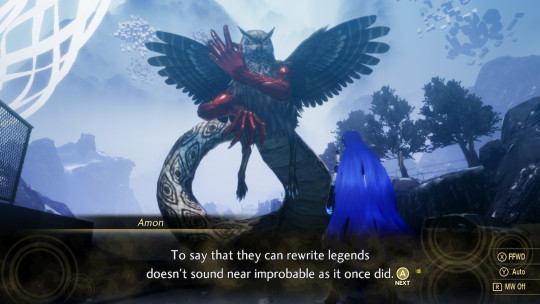
But GoW 2018 perfectly represents my “most media about mythology hates mythology” observation, as if the subject is a hurdle to be overcome for the sake of an “original vision.” But media using myths earns attention and inevitable ire unlike other fictional works because it flies closest to the “sun” of real culture and subsequently is more prone to melting its wax-wings if executed poorly. This is opposed to something like Final Fantasy that’s never trying to get off the ground in the first place. But still, there are plenty of examples that soar--like Nocturne, which understands the symbolic meaning of cavernous spaces, fire, and sacrifice, to name a few. It’s original, but also feels naturally mythic.
As for others, nothing’s coming to mind. But if you want to get down to it, cultures and regions with different religious backgrounds naturally produce locally resonant works. Like, umm... well, my brain’s a bit empty after writing this but there’s lots out there. It’s not hopeless. And I really do think much of the problem with mythology in media is with mass market adaptations casting wide nets (or, paradoxically, small nets aimed at majority demographics) and thus smoothing over subtleties and cultural context for streamlined “experiences.”
53 notes
·
View notes
Text
On The Theatrics Of Inversion: How Indigenous People Became ‘Settlers’

Two days ago, activist JB Brager of the deceptively-named ‘Jewish Voice for Peace’ published an illustrated analysis of Zionism as an indigenous rights cause in Jewish Currents.
Their picture book (a fitting medium, I suppose) is not so much an analysis as it is a puerile, recalcitrant temper tantrum. If nothing else, it is as stark an example of Jewish self-hatred as anything I could imagine from a purported Jewish outlet.
For the sake of digestibility, I’ll address everything in a piecemeal fashion.
On the meaning of indigenous – From the very first panel, we see the authors attempting to spin Jewish discourse on indigeneity into a blood and soil argument — a calculated bid at misrepresenting Zionism as the Jewish version of German Volkisch nationalism. Attempting to place us on par with our worst abusers, the Nazis, appears to be a common theme for antisemites.
To wit, the authors deliberately pervert the meaning of indigeneity, arguing that (at least in our case) it is about nothing more than blood.
While common ancestry with the land’s original inhabitants is certainly part of the criteria, it is only one part. Indigeneity is first and foremost about ethnogenesis, or ‘where a people became a people’.
Jews do not, and never have, claimed indigeneity to Israel solely on the basis of blood. We claim it because we originated as an ethnic group on that land. Virtually everything about us, from our language and alphabet to our holidays and laws and core culture, is specific to the land of Israel/Palestine.
It is true that ethnic Jews — who comprise roughly 99% of global Jewry — trace the bulk of their genetic ancestry to the Levant (specifically to Bronze Age Canaanites, from whom the Jews and Samaritans emerged as subsets), but this alone does not qualify a population for indigenous status. Ethnogenesis, core culture, national language, collective spiritual ties, etc are equally important, if not more so. Indigenous status is a package deal.
And as the authors themselves limply admit, Jews do meet all of the established criteria for indigenous status in Israel.
On the meaning of colonization – Mendaciously, the authors circumscribe the concept of colonialism to a specific time period and context, in particular the European capitalist exploration/exploitation of the “New World”, Asia, and Africa. From here, they posit that any example of colonization which predates Columbus (e.g. the Roman and Arab conquests of Israel) does not qualify as colonialism in any meaningful sense and that therefore Zionism – by dint of the diaspora location it was born in, and a few choice quotes taken out of context – is a quintessential example thereof.
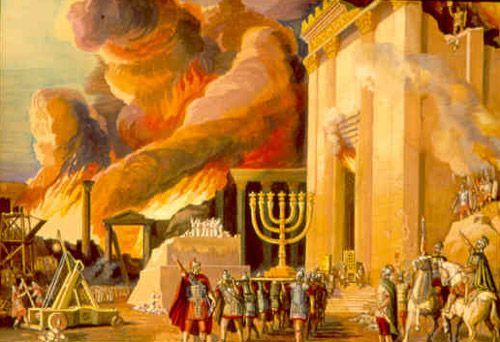
“No no, that doesn’t count! That’s not colonialism! That’s CLASSICAL imperialism – something more refined and elegant! I’m sure the Romans had a good reason for putting the Jews down!” Source: Pinterest
The authors, in their zeal to pound a Zionist square peg through a settler-colonial round hole, frantically twist the meaning of colonialism and impose an arbitrary cut-off point in its application so as to exclude Jewish grievances from its ambit. After all, how can a population be guilty of colonialism in a land it originated in and were displaced from… as a result of colonialism? It’s not possible, and the authors themselves know this. Otherwise, they would never have gone to such lengths to rewrite history.
Although early Zionists did market their liberation movement as “colonization”, this term had a much broader meaning in Herzl and Jabotinsky’s day.
In the late 19th century, it was a general term for anyone – indigenous or not – who migrated from one place to another and established towns, villages, etc.
Today, “colonization” has a more specific meaning – that of a foreign (non-indigenous) population invading a territory and expropriating its land and resources at the expense of the indigenous population, typically on behalf of a metropole (or mother country).

“No no, that doesn’t count either! Non-Jewish brown people can’t be colonizers!”
Source: Pinterest
Firstly, the Zionists did not have a “metropole” – no motherland or fatherland to report back to. Israel was, and is, the motherland. It is the land we come from, the land we were violently expelled from, and the land to which we have returned, however desperately Israel’s enemies wish to deny it.
Second, the Zionists did not “invade” or “expropriate” anything. They purchased land, mainly from absentee landowners, and cultivated it with their own hands, building new cities, villages, and communes in addition to reclaiming older ones that had been built by their ancestors pre-exile.
Thirdly, and perhaps most importantly, the Zionists (at least initially) needed the support of the British to get the ball rolling. Had they marketed Zionism to them as an anti-colonial/indigenous rights movement, the British would have balked and the Zionist Congress would have been back to square one.
The fact that some early Zionists used the word “colonization” does not negate the indigeneity of our people to Israel nor the anti-colonial nature of our movement.
On “appropriating Palestinian culture” – This claim does not wash, seeing as the vast majority of what anti-Zionists claim to be “Palestinian” is, in fact, Levantine. That is to say, Arabs did not bring these things with them when they conquered the Levant. Rather, they simply took what was already there, put Arabic names on them, and deemed these items to be “theirs”.
This is a topic I’ve covered in the past.
To wit, these things are as much (if not more) a part of Jewish culture as they are part of than Palestinian Arab culture. We had them before we were exiled from our land. The fact that we were unable to bring them with us to the foreign climates we were exiled to does not make them any less “ours”. All it means is that colonialism and exile made it impossible for us to continue practicing certain traditions for a time, and now we are reclaiming them. That is what decolonization is and has always about – for Jews, and indigenous peoples in general.
Ignoring the inflammatory headline:
“As was proven by the late Prof. Menachem Felix and many other people, there is almost no vegetable, fruit, spice or cooking method now ascribed to the Syrian-Palestinian kitchen that is not mentioned in the Bible or the Mishnah, and that didn’t migrate with the Jews when they were exiled from their land. Even in the cold climates of Eastern Europe and Ashkenaz (the medieval Jewish term for what is now Germany), where the Jews were unable to use their original raw materials, they maintained the principles of their cuisine until they returned to their homeland.
The same arguments, of course, naturally extend to jewelry, pottery, the sudra, musical instruments, and other traditional Levantine things.
On the Ashkenazi Jews gallery – This photo gallery, which I have linked to in many of my articles, is an (as of yet unfinished) compilation of well-known public figures who are entirely of Ashkenazi Jewish ancestry. Of this gallery, the authors falsely claim that it is based on a cherry-picked selection of photos. In other words, the creator/s deliberately sought out darker-skinned Ashkenazi individuals to the exclusion of lighter-skinned ones to create a “false” impression that Ashkenazim are… well, a Middle Eastern community of color.
However, a cursory glance at the gallery reveals that lighter-skinned Ashkenazi Jews were not excluded. On the contrary, virtually all of them were included. So the claim of cherry-picking/manipulation does not wash.
Their claim that Joseph Ruskin, among others, is wearing brownface is easily disproved by a quick Internet search. They are not wearing brownface. That is how they naturally look.
Ironically, the entire reason that this gallery exists is because anti-Zionists constantly point to lighter-skinned Ashkenazi Jews (especially Ashkenazim who are products of recent intermarriage and thus obviously look a fair bit whiter than the average, e.g. Scarlett Johanssen) as “proof” that we can’t possibly be from the Middle East. Essentially, the author is confusing Jewish action with Jewish reaction.
On the definition of Jewishness – The article makes no attempt at defining Jewishness or demarcating its parameters. However, all historical evidence makes it abundantly clear that – from our ethnogenesis up to the present – we have always defined ourselves as a singular nation and ethnicity. We may have distinct spiritual practices (which are today referred to as Judaism), but people in the ancient world didn’t really make a distinction between religion and other facets of their lives. Spirituality was part and parcel of their nationality and ethnicity, not an addendum to them.
On power dynamics – Although power dynamics have always been a key aspect of indigenous rights discourse, the authors of this piece misleadingly and conspicuously misrepresent the power dynamics of the Israeli-Arab conflict.
Most notably, instead of zooming out and looking at the full picture of Israel’s conflict with the larger Arab world and even Muslim world, they zoom in on Israel’s dynamic with Palestinians specifically. This is because the authors understand that, if they were to acknowledge the conflict as one of Israel vs the larger Arab/Muslim world, all optics would present Israel as the embattled underdog.
However, if they can misrepresent it as a conflict between Israel and Palestinian Arabs specifically, Israel comes out looking like the bully. The PLO understood this from the outset, and this is why it has been their strategy since the late 1960s.
To quote Zuheir Mohsen of the PLO, circa 1977…
There is no difference between Jordanians, Palestinians, Syrians and Lebanese. Only for political and tactical reasons do we speak today about the existence of a Palestinian people, since Arab national interests demand that we posit the existence of a distinct “Palestinian people” to oppose Zionism. Yes, the existence of a separate Palestinian identity exists only for tactical reasons, Jordan, which is a sovereign state with defined borders, cannot raise claims to Haifa and Jaffa, while as a Palestinian, I can undoubtedly demand Haifa, Jaffa, Beer-Sheva and Jerusalem. However, the moment we reclaim our right to all of Palestine, we will not wait even a minute to unite Palestine and Jordan.
Arabs in the Middle East, historically and to a large extent presently, identify as a singular people with only geographic/regional distinctions, and openly celebrate their shared cultures and histories, including a history of military conquest.
The overall message of the article appears to be “ignore incontrovertible, demonstrable, plain to see facts because they might hurt Palestinians”, which is completely and utterly irrational. It really says a lot about the anti-Zionist movement as a whole.
In toto, JB Brager’s “illustrated analysis of Zionism” is an antisemitic propaganda piece, and nothing more.
Dani Ishai Behan
77 notes
·
View notes